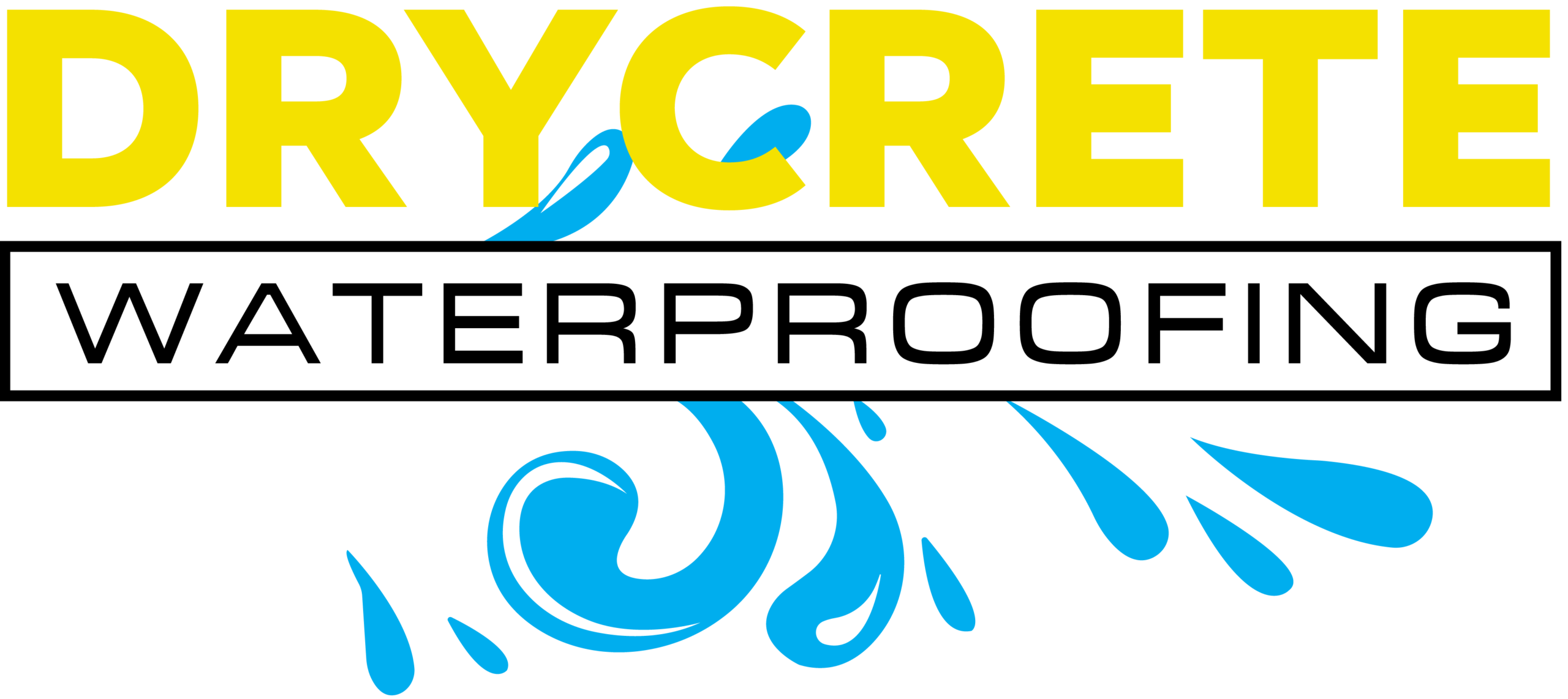Finishing a basement is a great way to add livable square footage to your home and increase its value on the housing market. Water damage, on the other hand, can cost quite a bit of money to repair and if left unaddressed can cause further damage and reduce the value of your home.
That’s why at Drycrete Waterproofing we encourage homeowners planning to finish their basement to waterproof it first. The additional money spent now can save you time, money, and stress down the line.
The Importance of Basement Waterproofing
According to The Insurance Information Institute, water damage affects approximately 14,000 people every day in the United States, impacting 1 in 60 insured homes. Basement waterproofing is the general term used to describe the systems put in place to stop that from happening.
Those systems include:
- French drains and sump pumps
- Vapor barriers
- Crack repairs
- Applied products such as crystalline and Drylok
- Gutters and down spouts
- Window wells
- Yard grading
- Dry wells
- Properly prepped concrete slabs
- Dehumidifiers
- And more!
Each home will require a unique combination of solutions to address the specific problems that the property faces. Each component works in concert to bolster the performance of the system.
A home that does not have appropriate waterproofing can face a variety of issues, including:
- Water Damage
- Mold and Mildew Growth
- Structural Damage
- Pest Infestations
- Electrical Hazards
- Decreased Property Value
- Unpleasant Odors
- Health Issues
- Loss of Usable Space
The Process of Retroactive Waterproofing
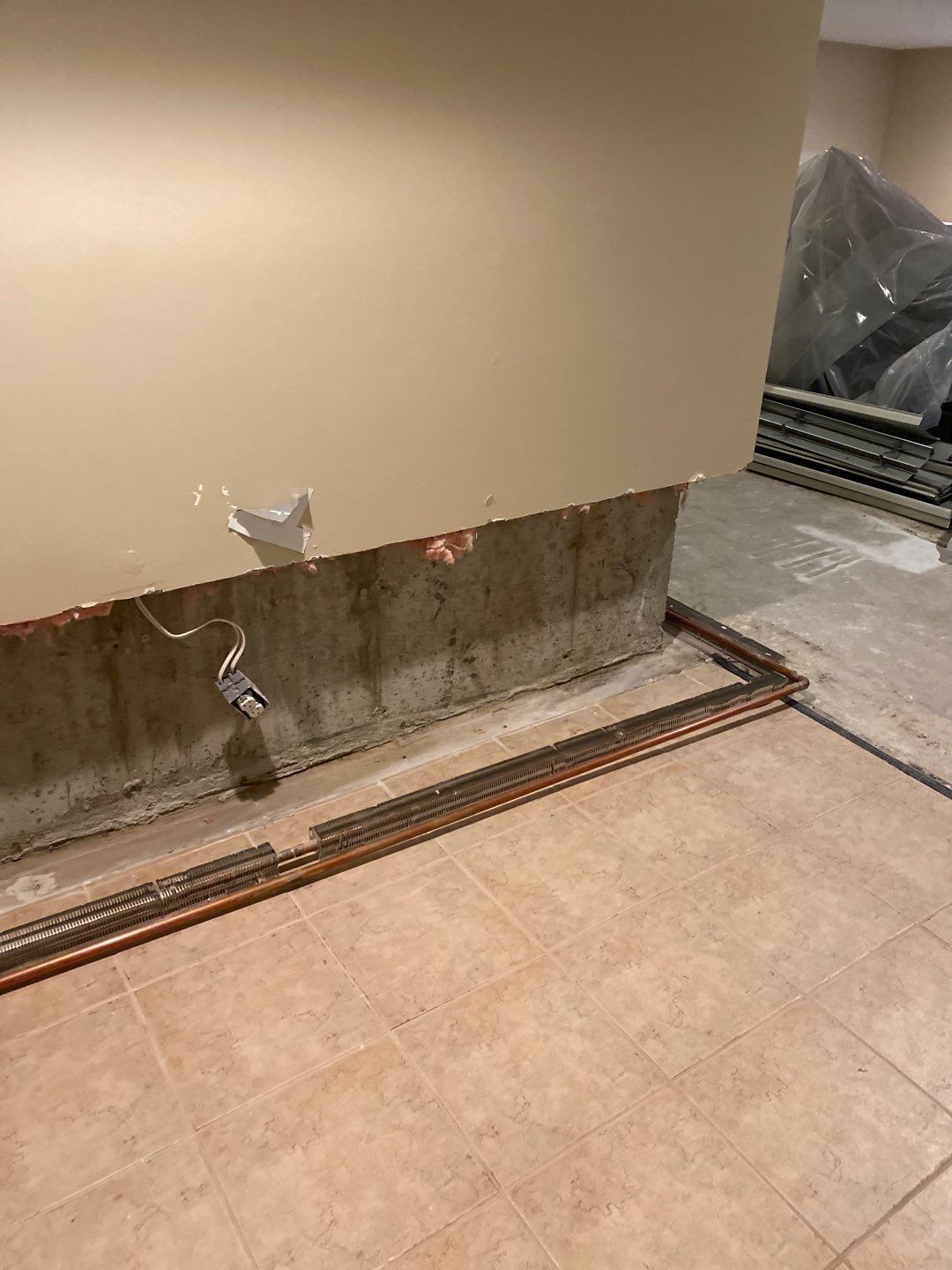
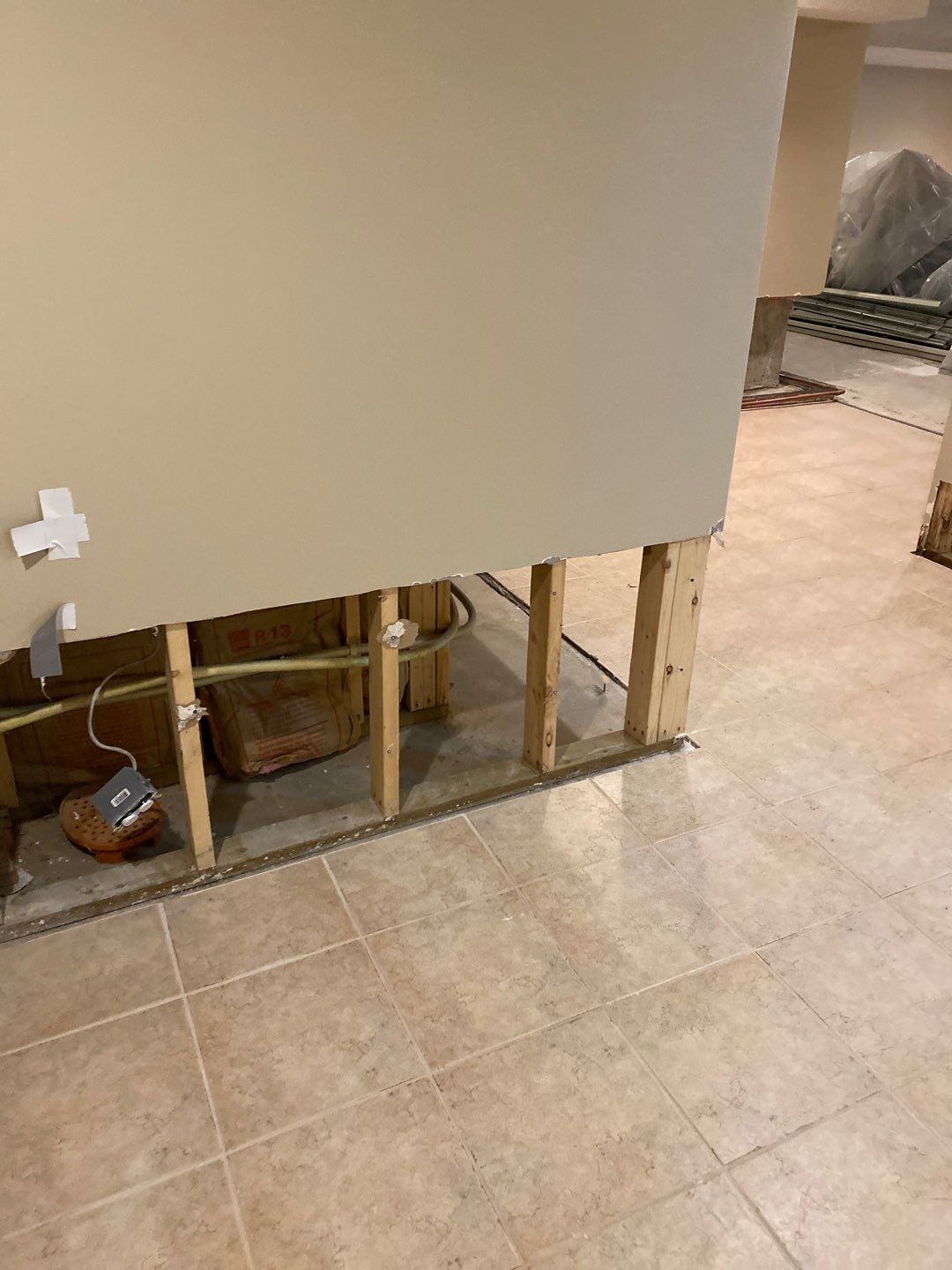
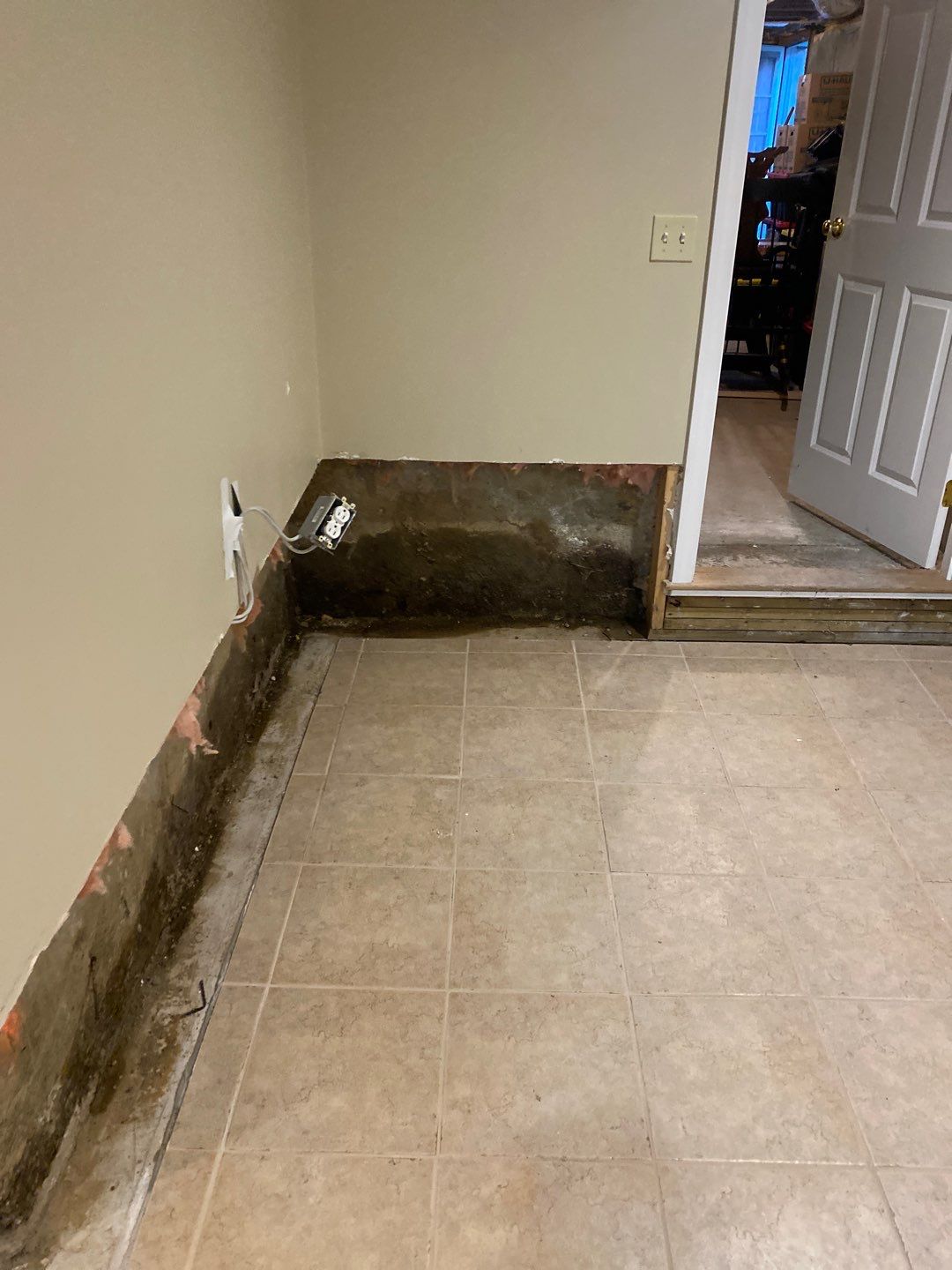
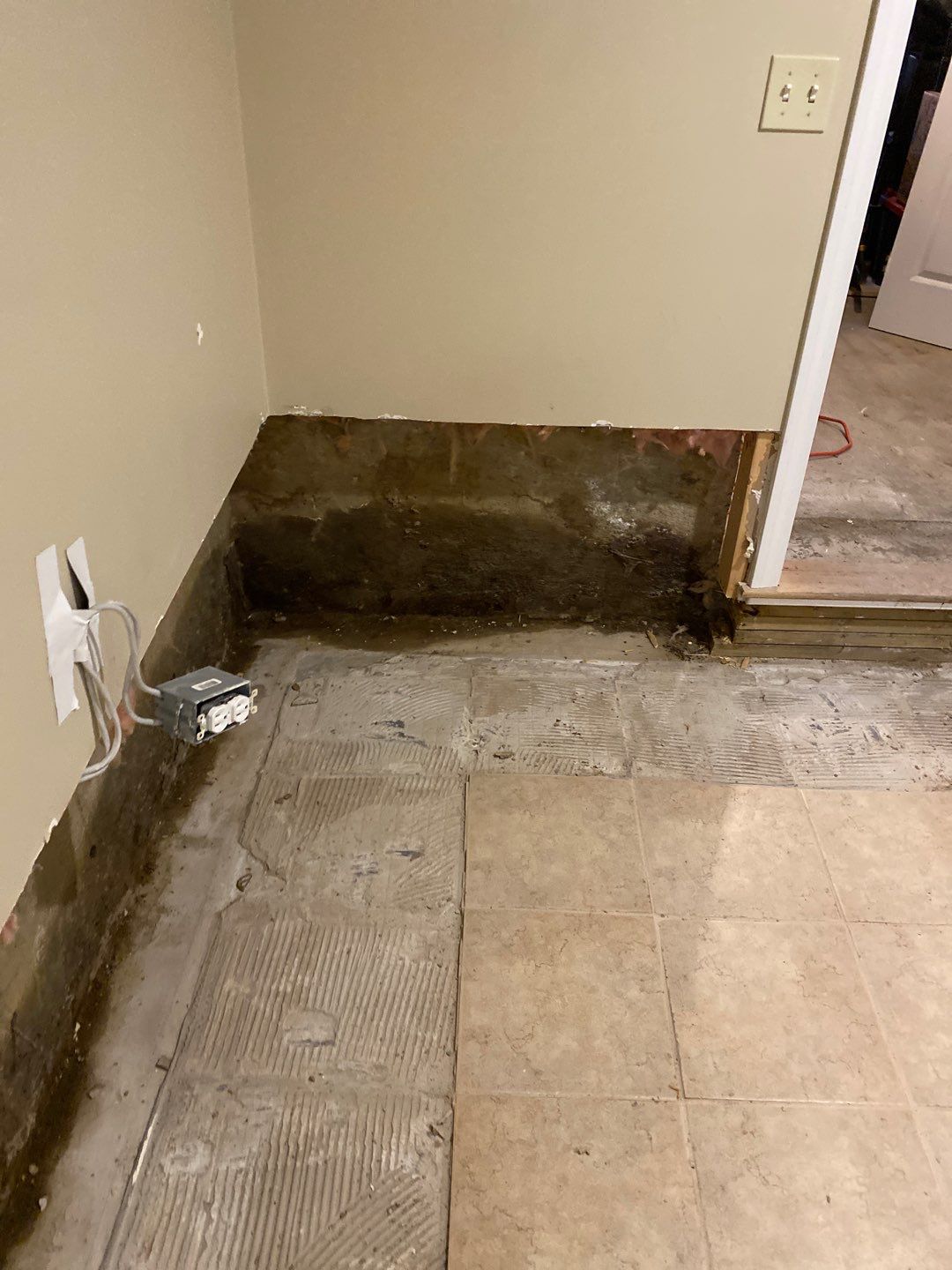
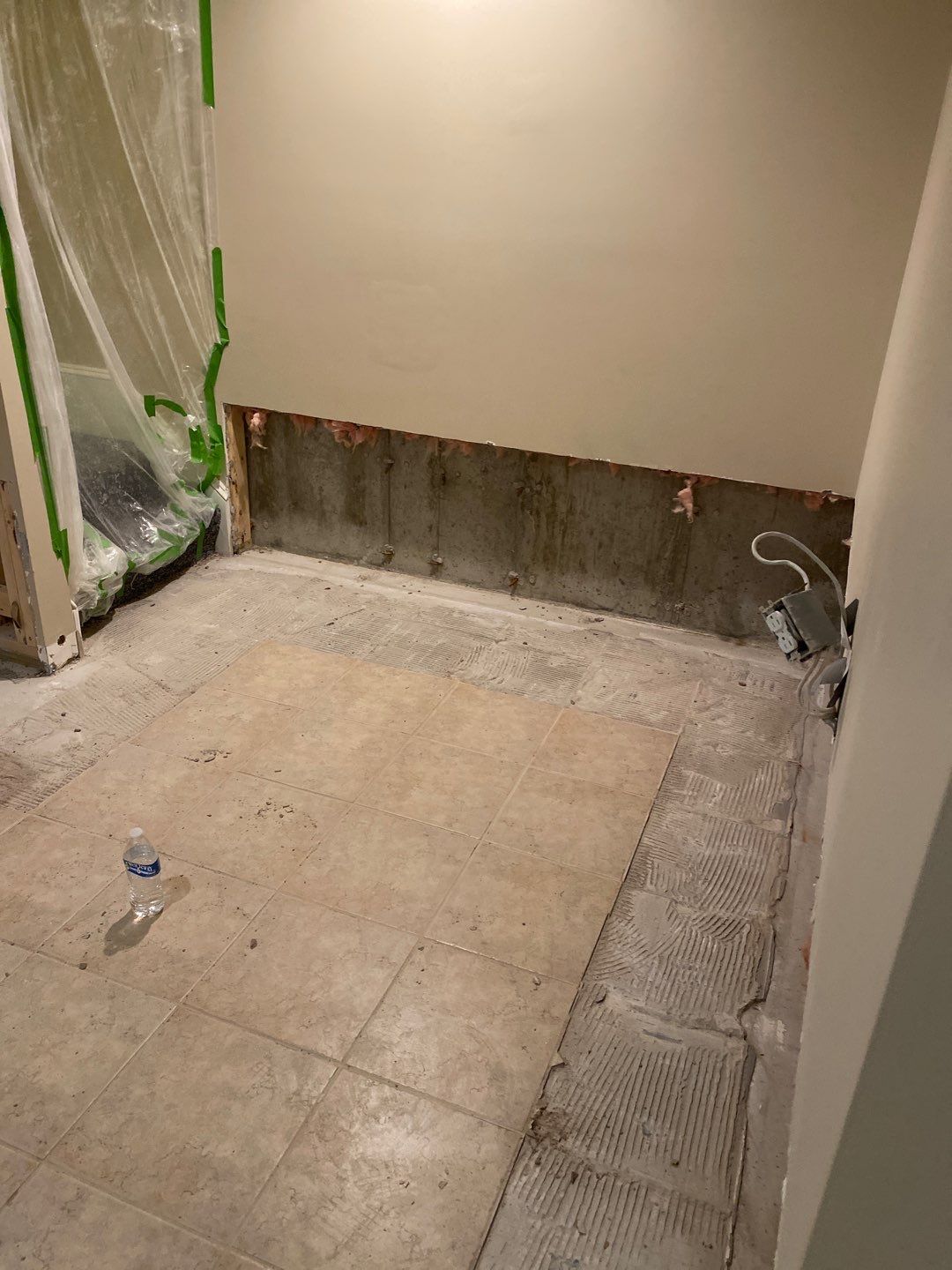
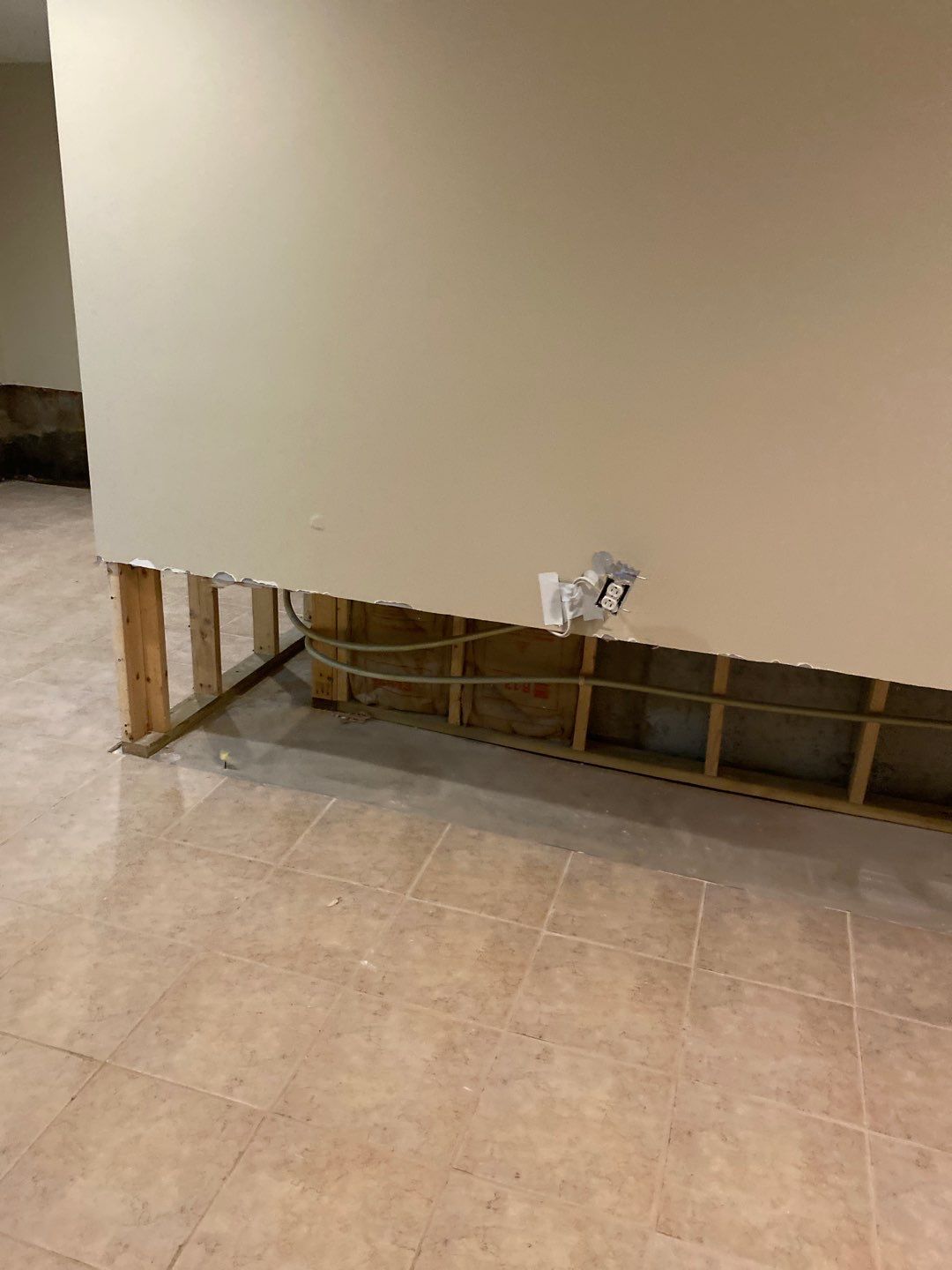
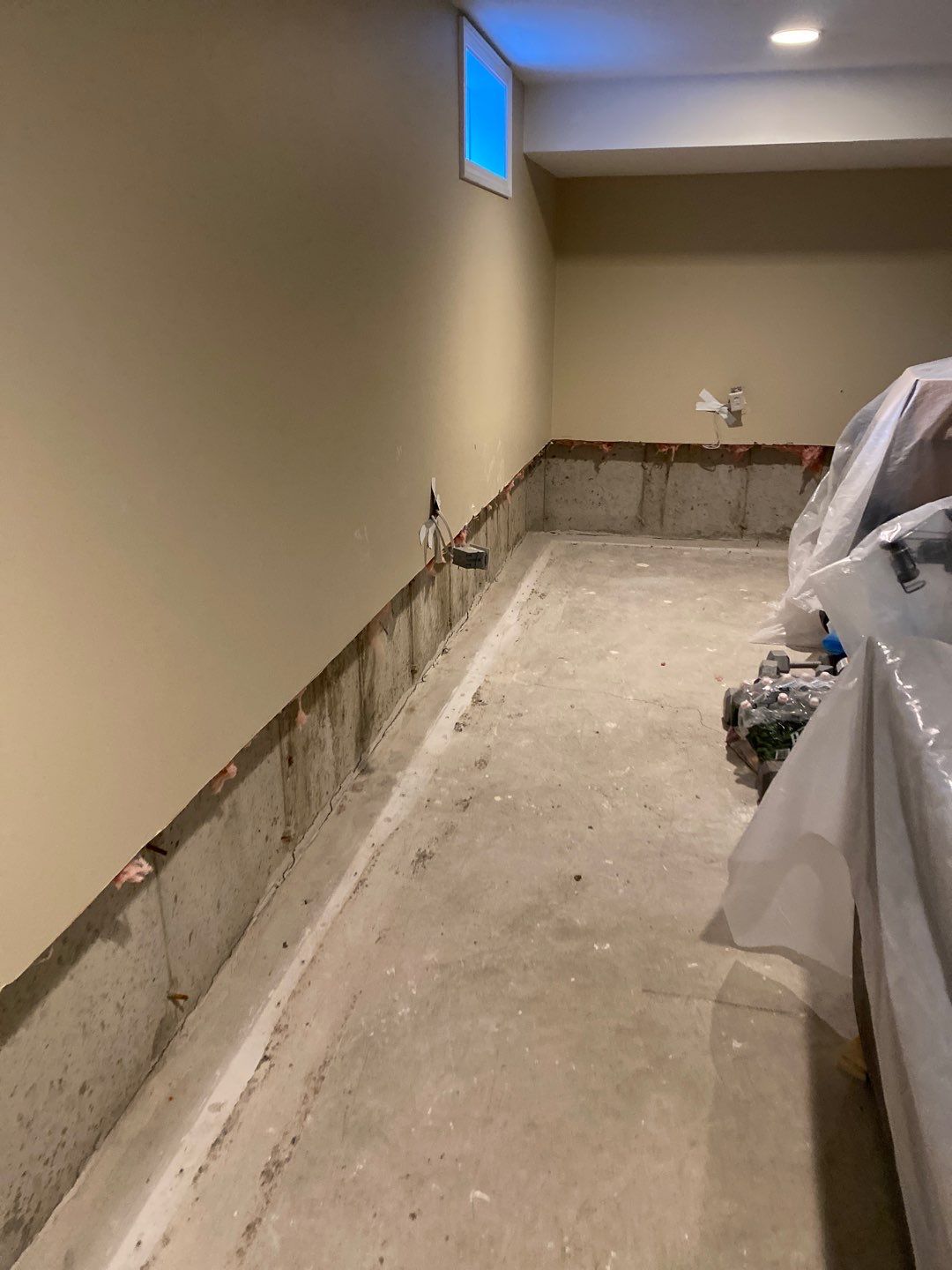
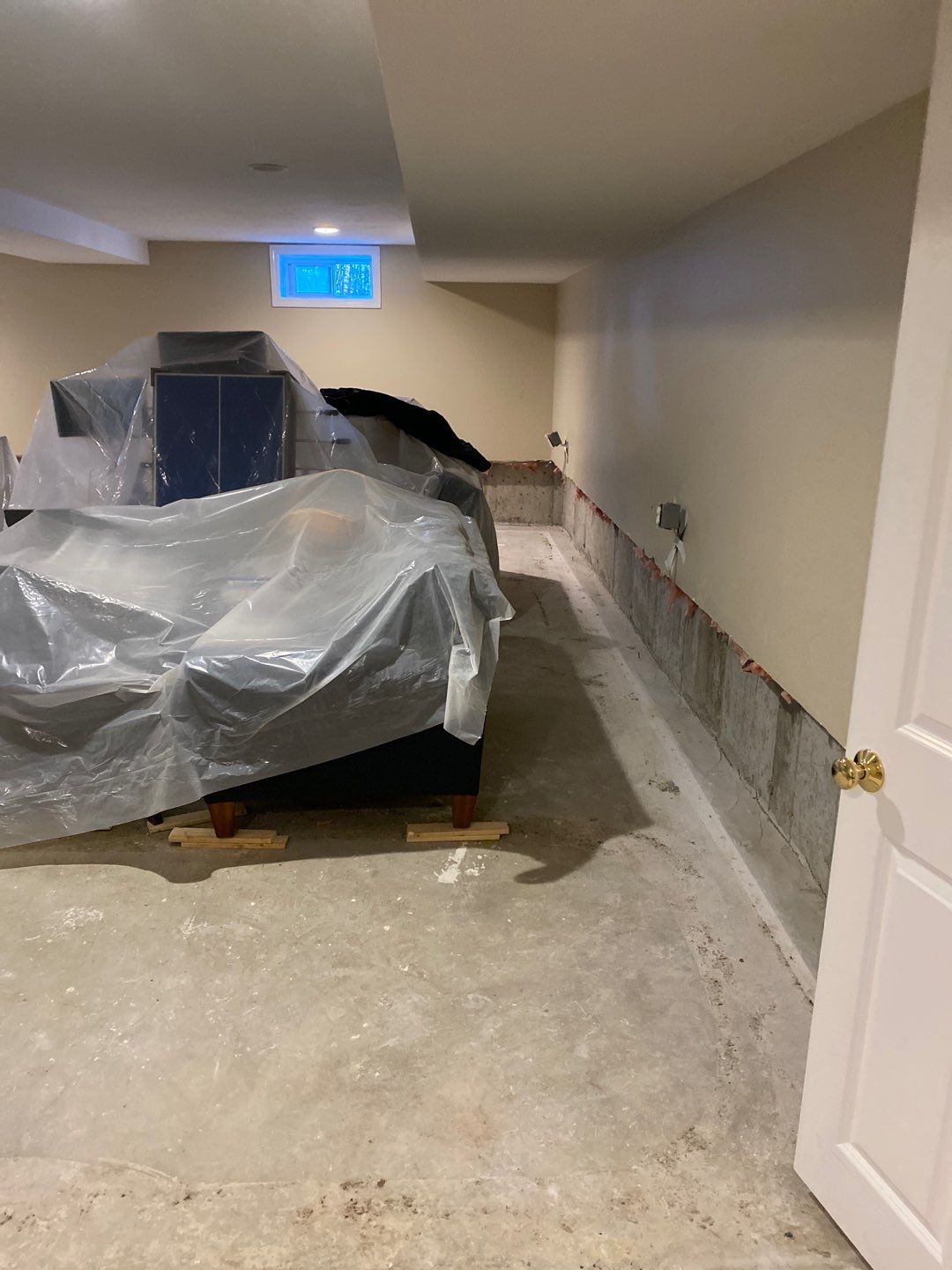
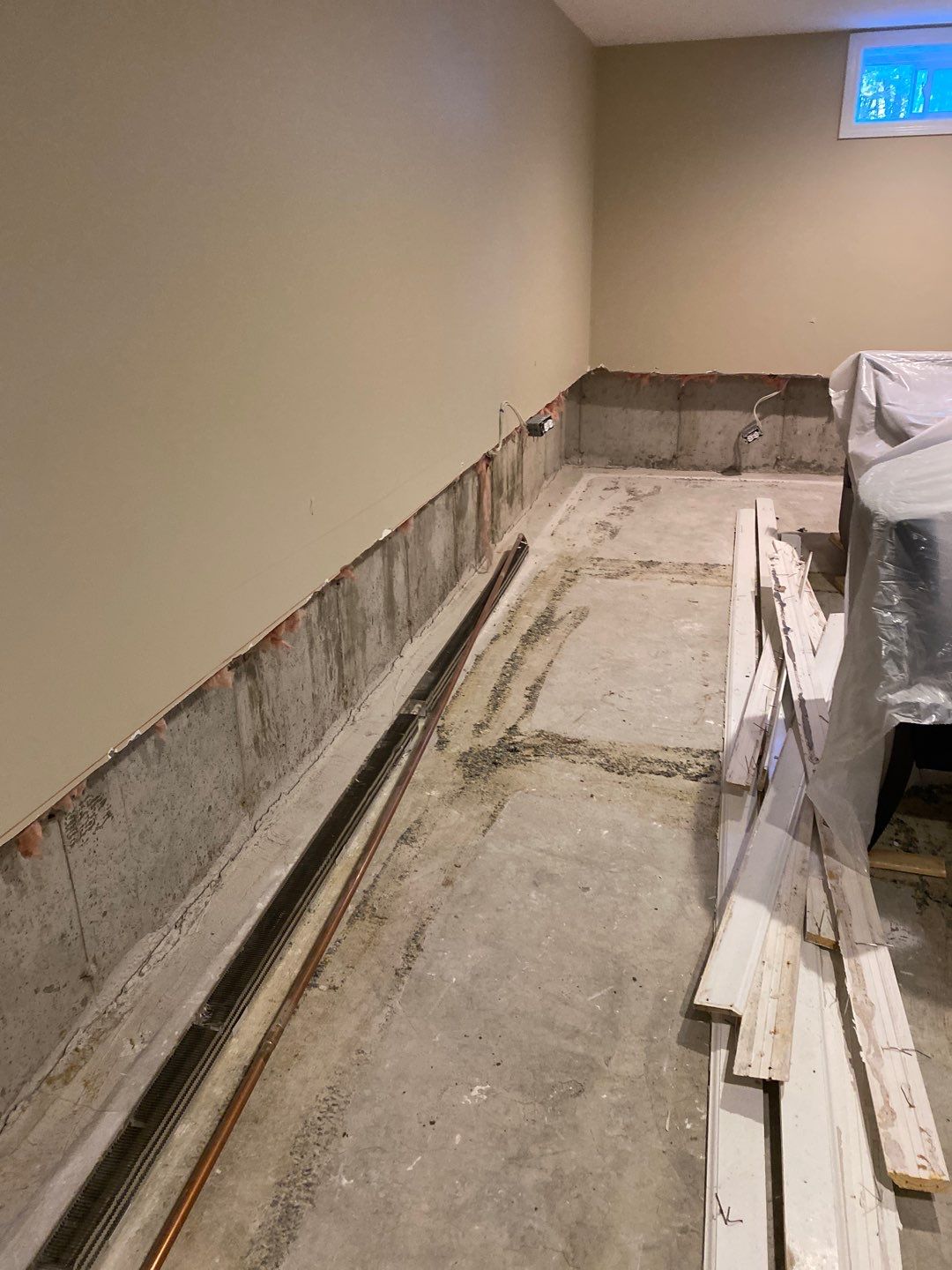
Despite the large price tag on a basement finishing project and the tendency for basements to take on water, we encounter quite a few homeowners or general contractors who choose to neglect this important step. When they come to us these homeowners are looking to retroactively waterproof their homes.
Waterproofing a basement after it has been finished is a complex and often costly process. It typically involves the removal of existing finishes—such as drywall, flooring, and ceilings—to access the basement walls and floor for treatment. The steps may include the installation of interior drain systems, the application of waterproof coatings, or even exterior excavation to address foundation issues.
The challenges of retroactive waterproofing are not just limited to the inconvenience and mess. The additional costs can be substantial, often far exceeding what preemptive waterproofing would have cost. Homeowners may find themselves facing not only the expense of waterproofing but also the cost of repairing or replacing damaged finishes and possessions.
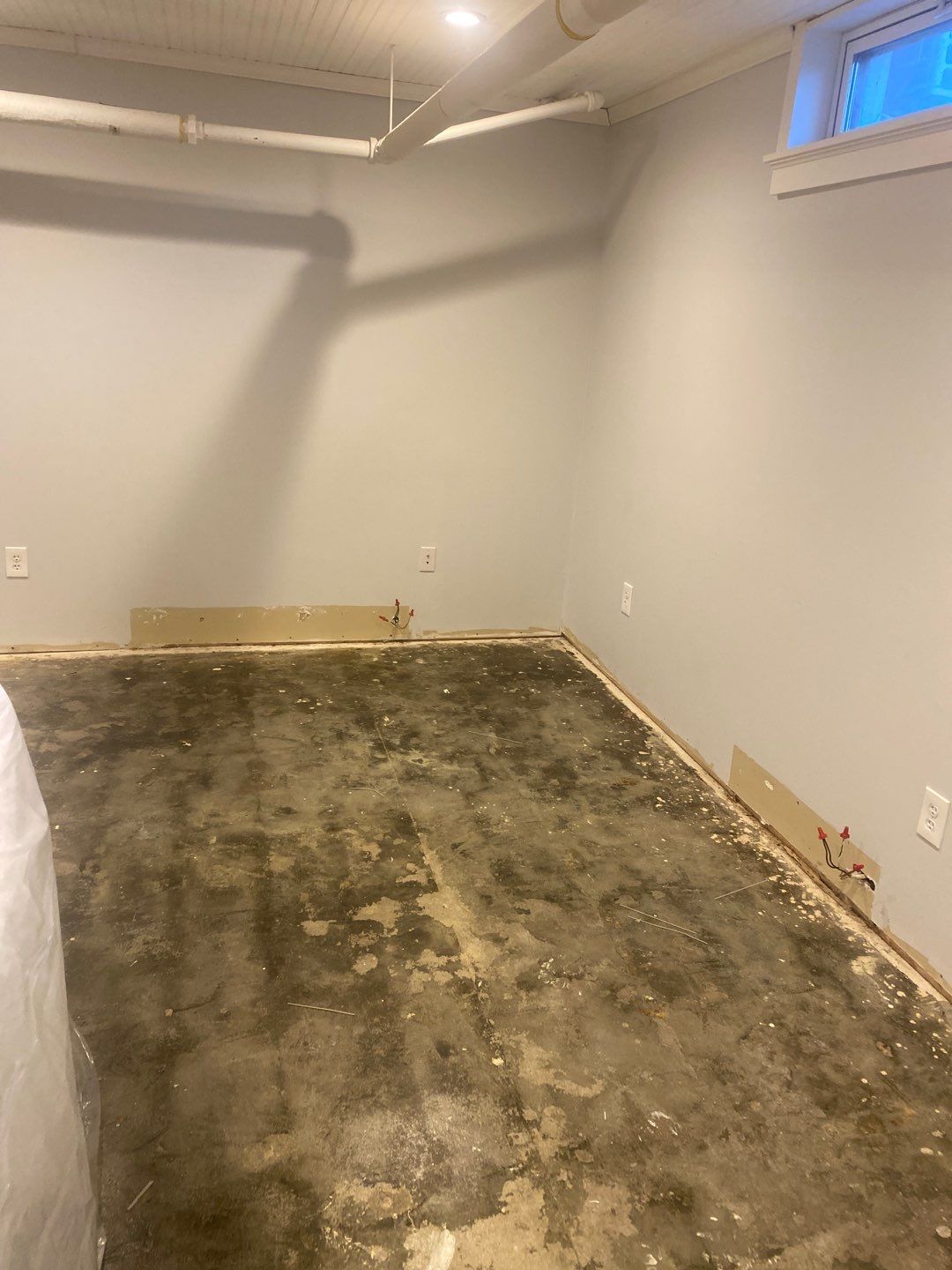
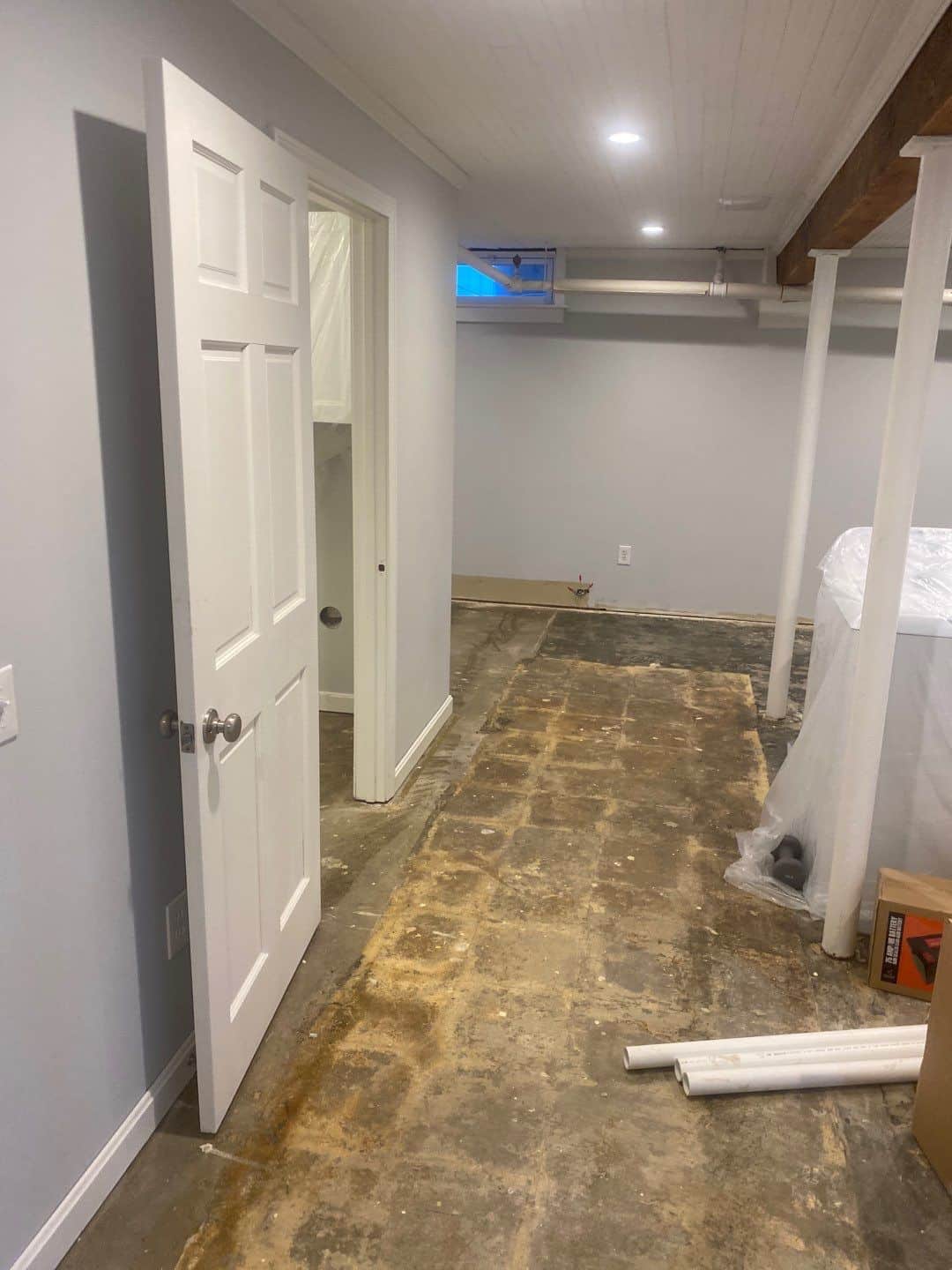
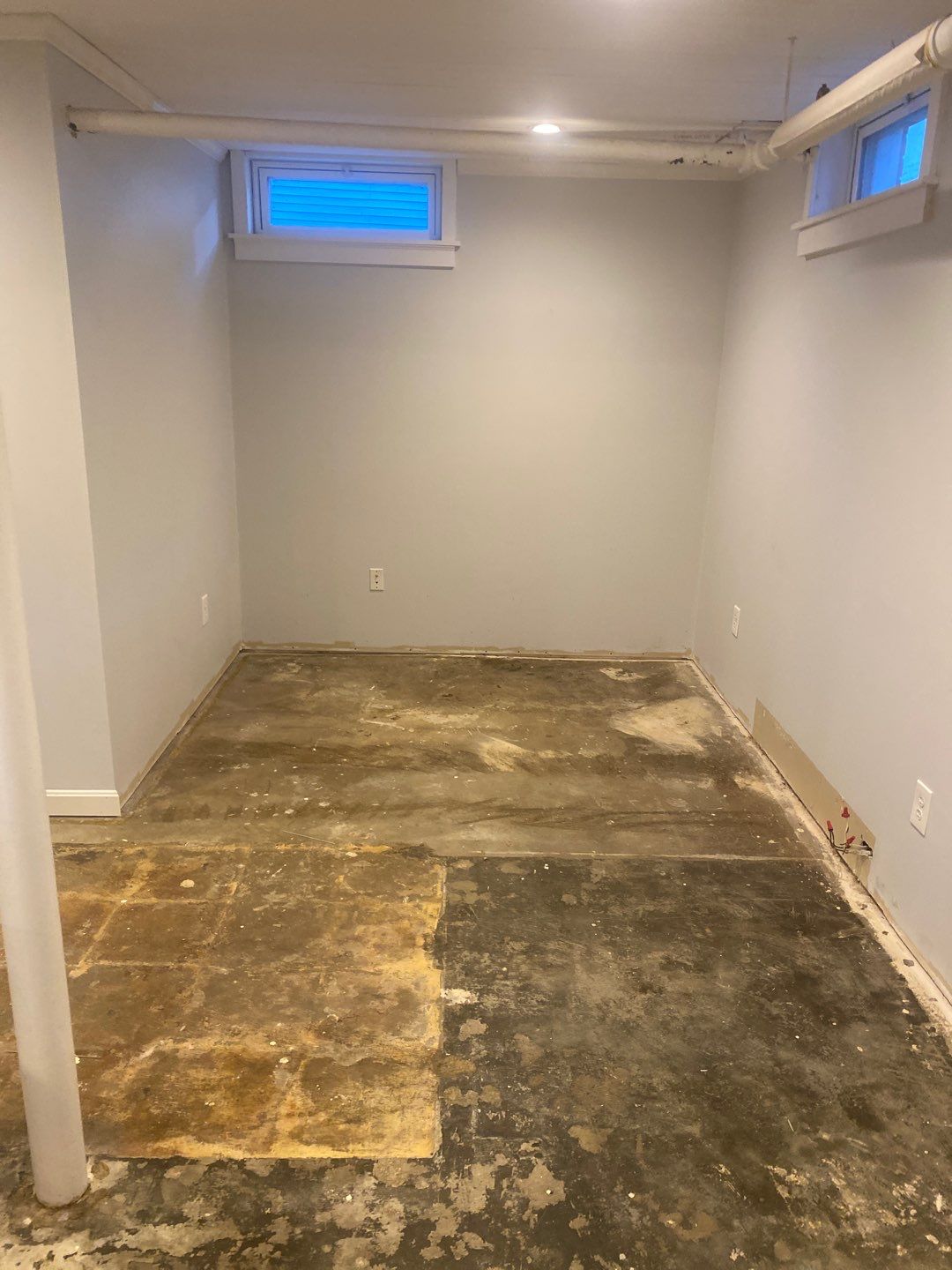
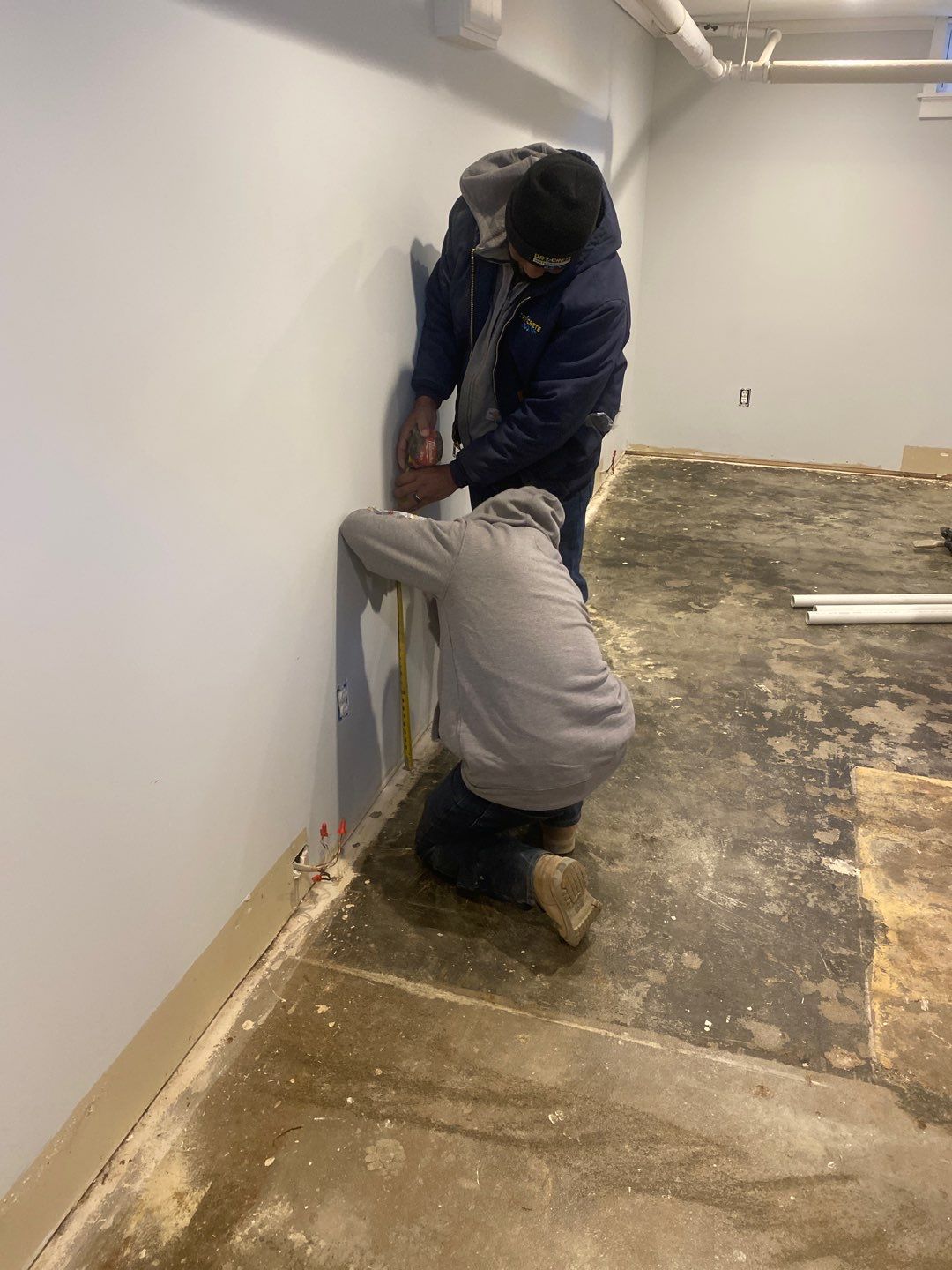
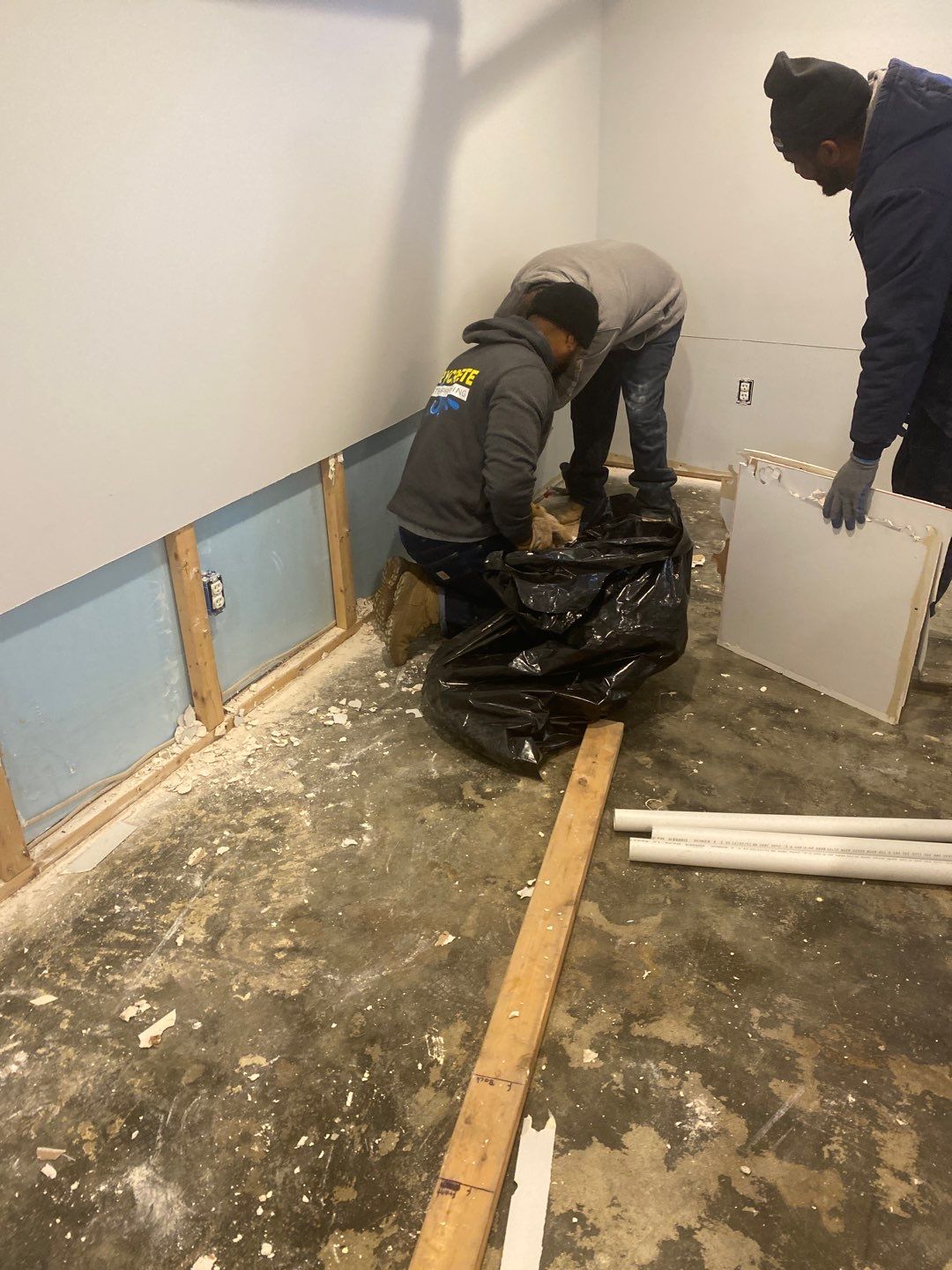
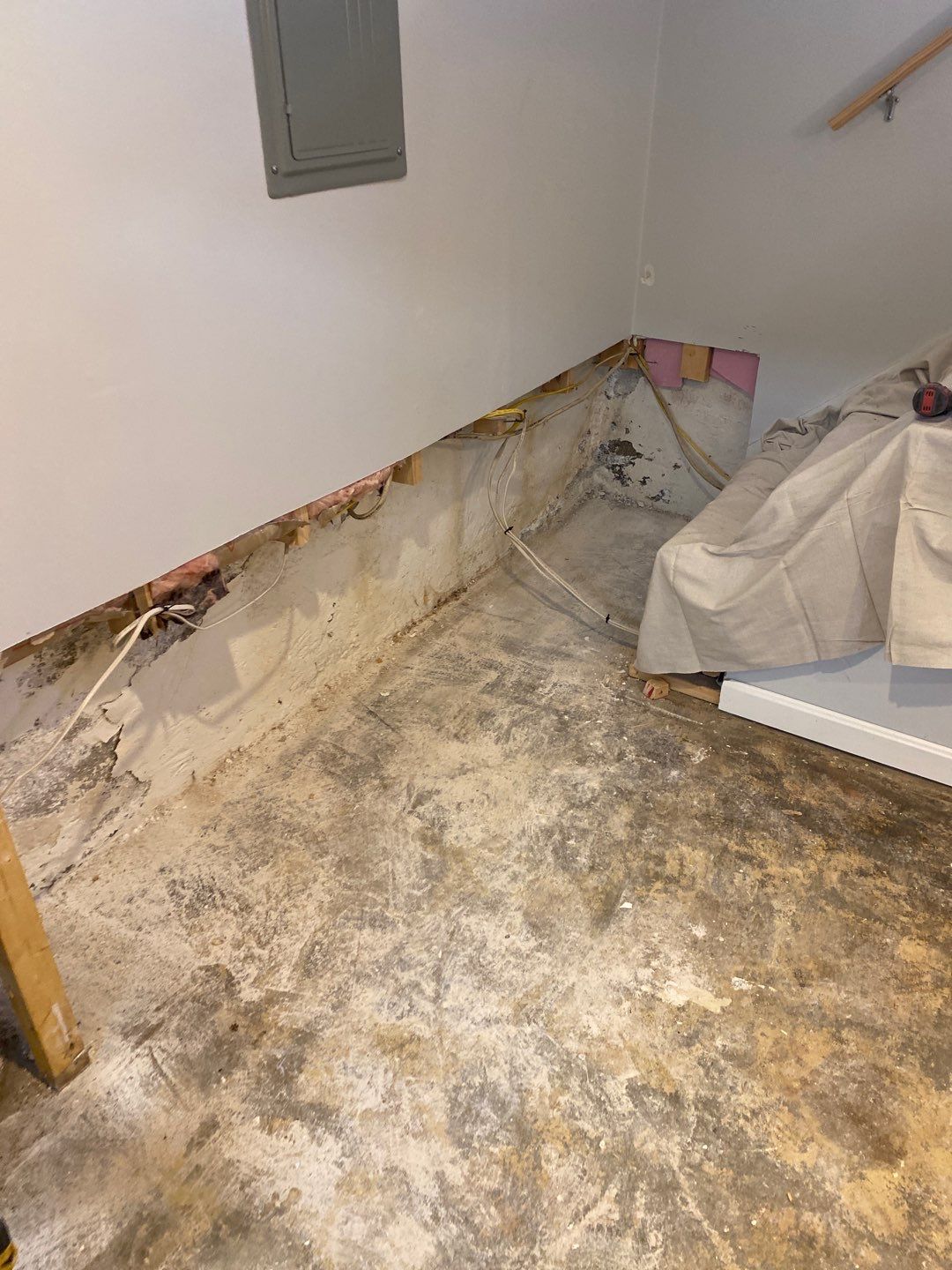
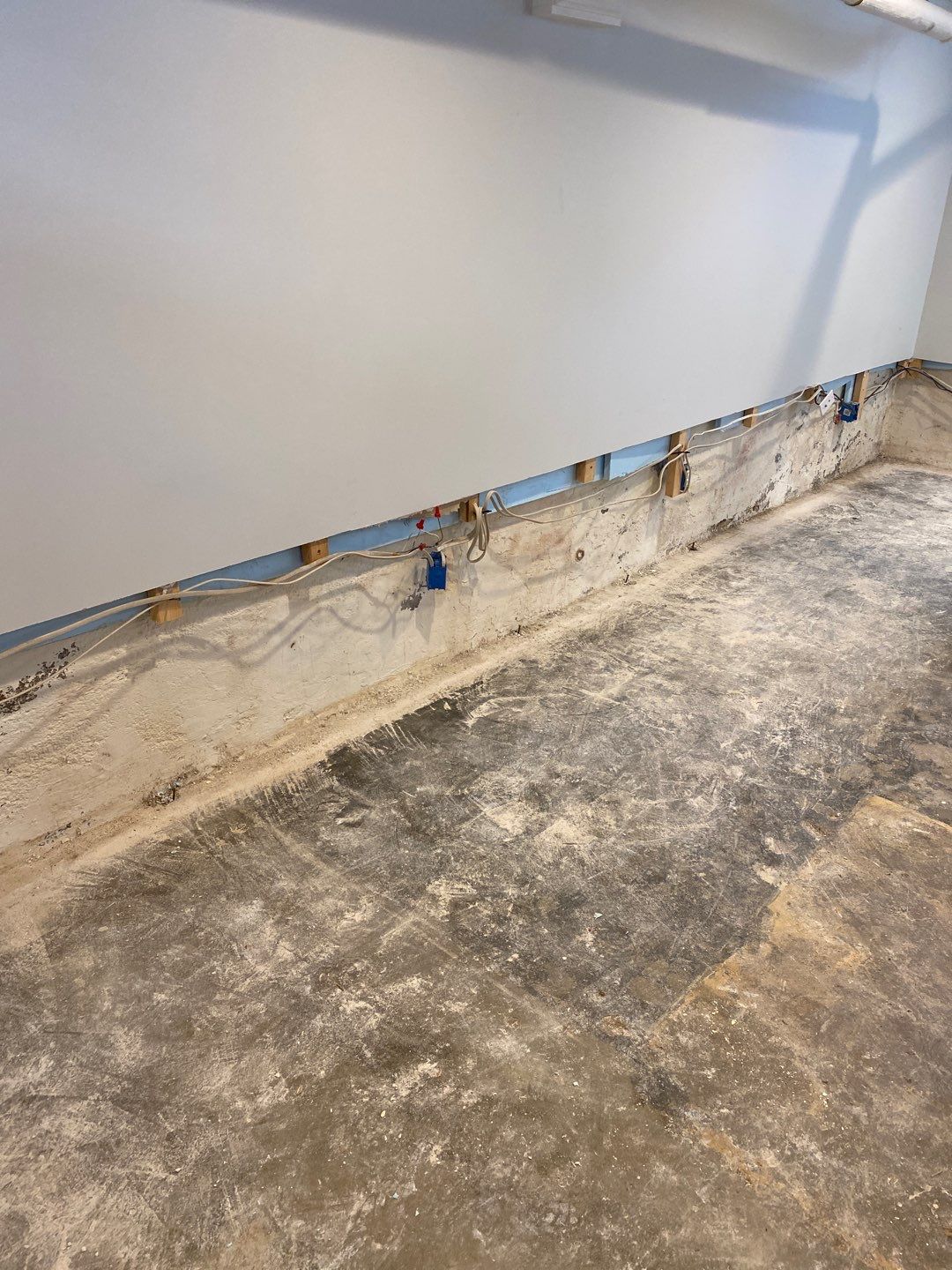
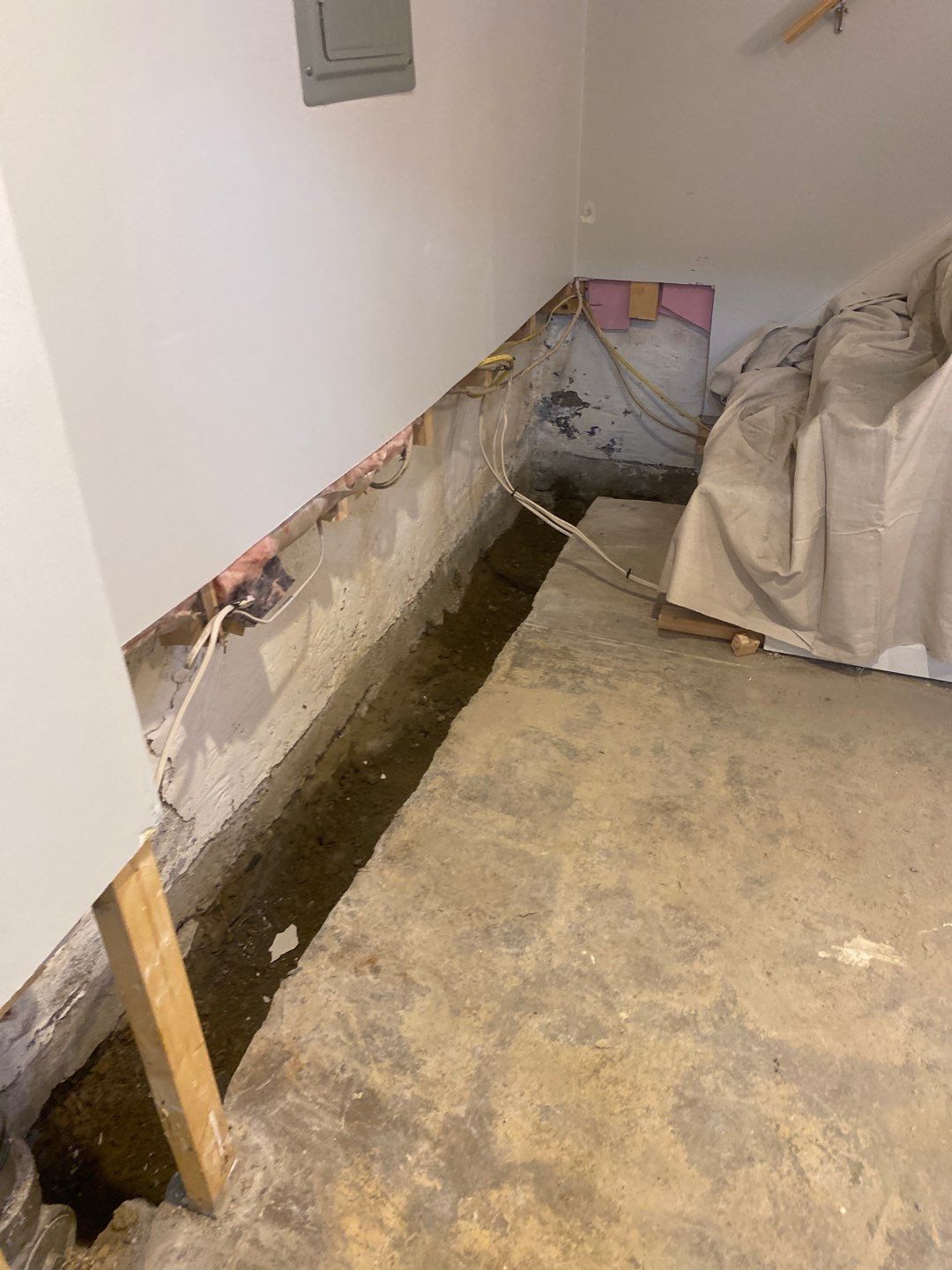
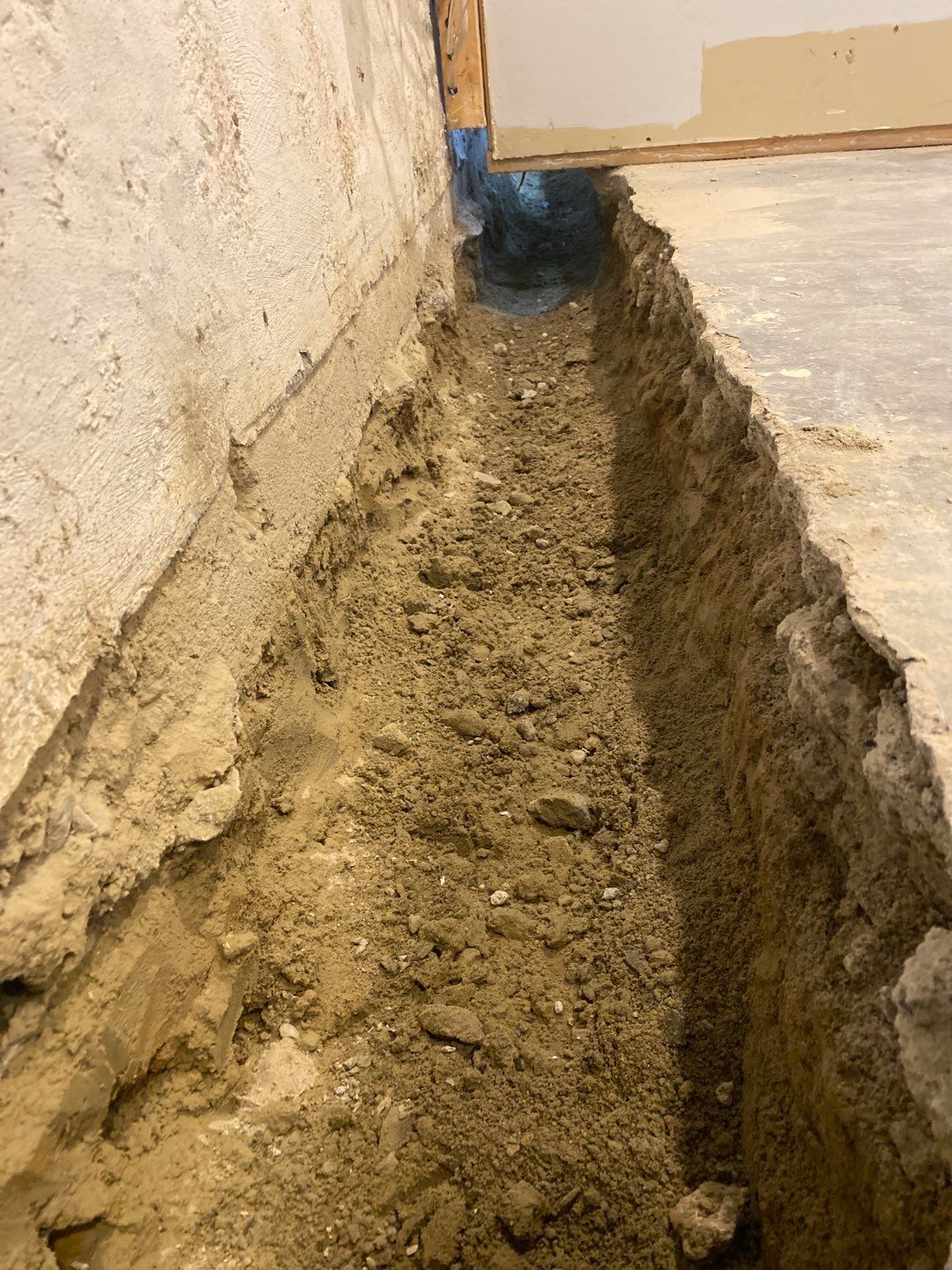
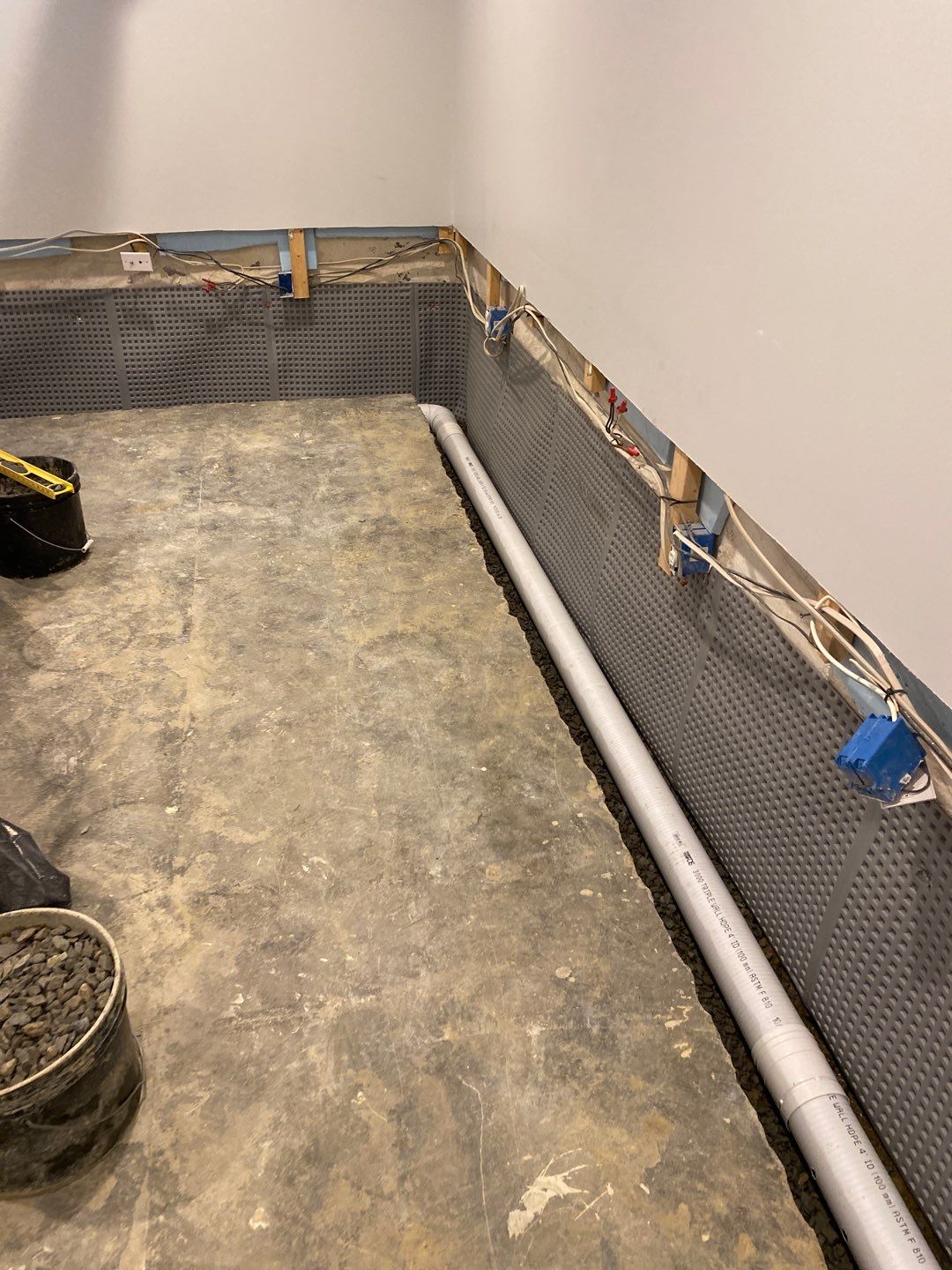
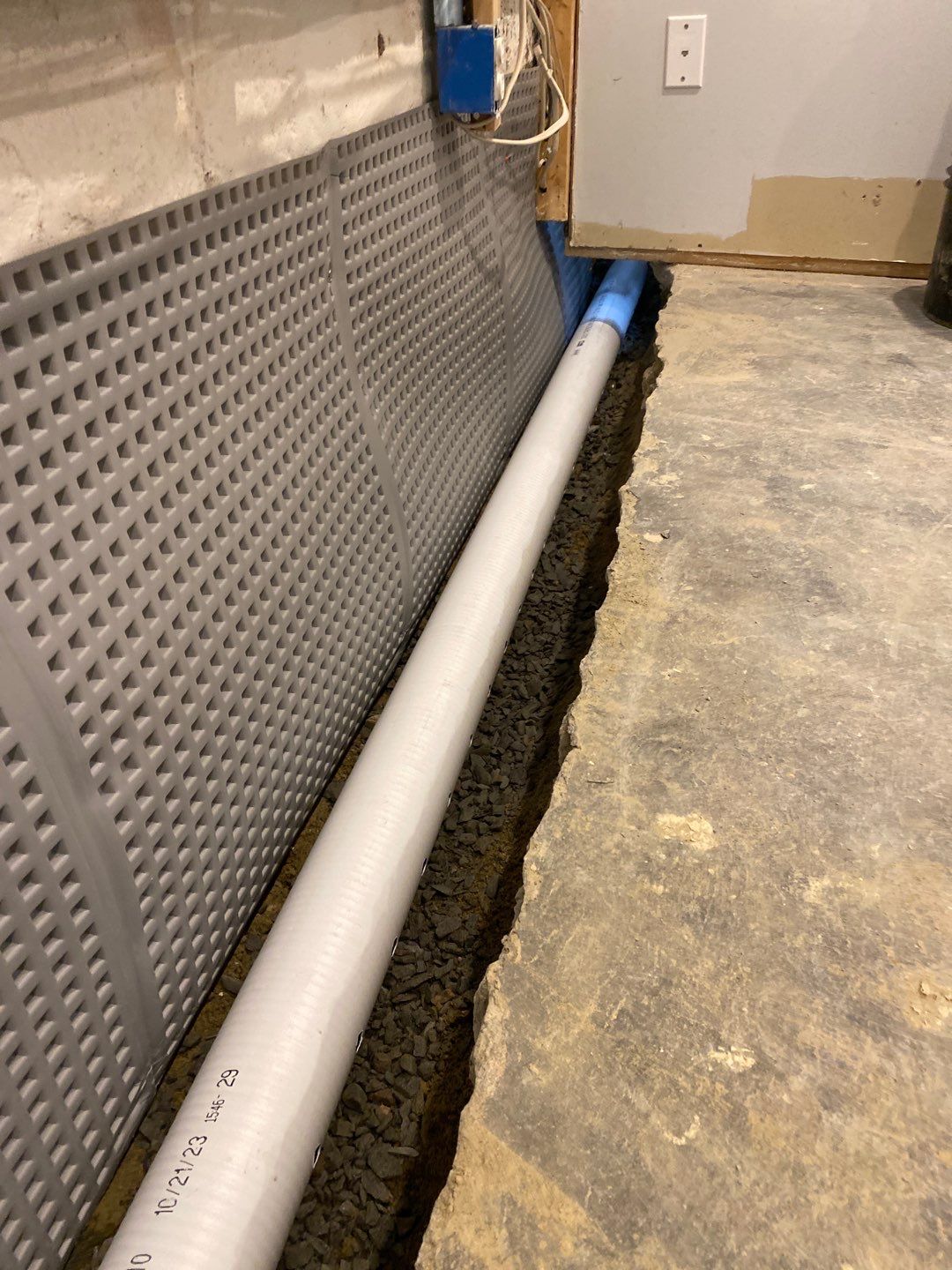
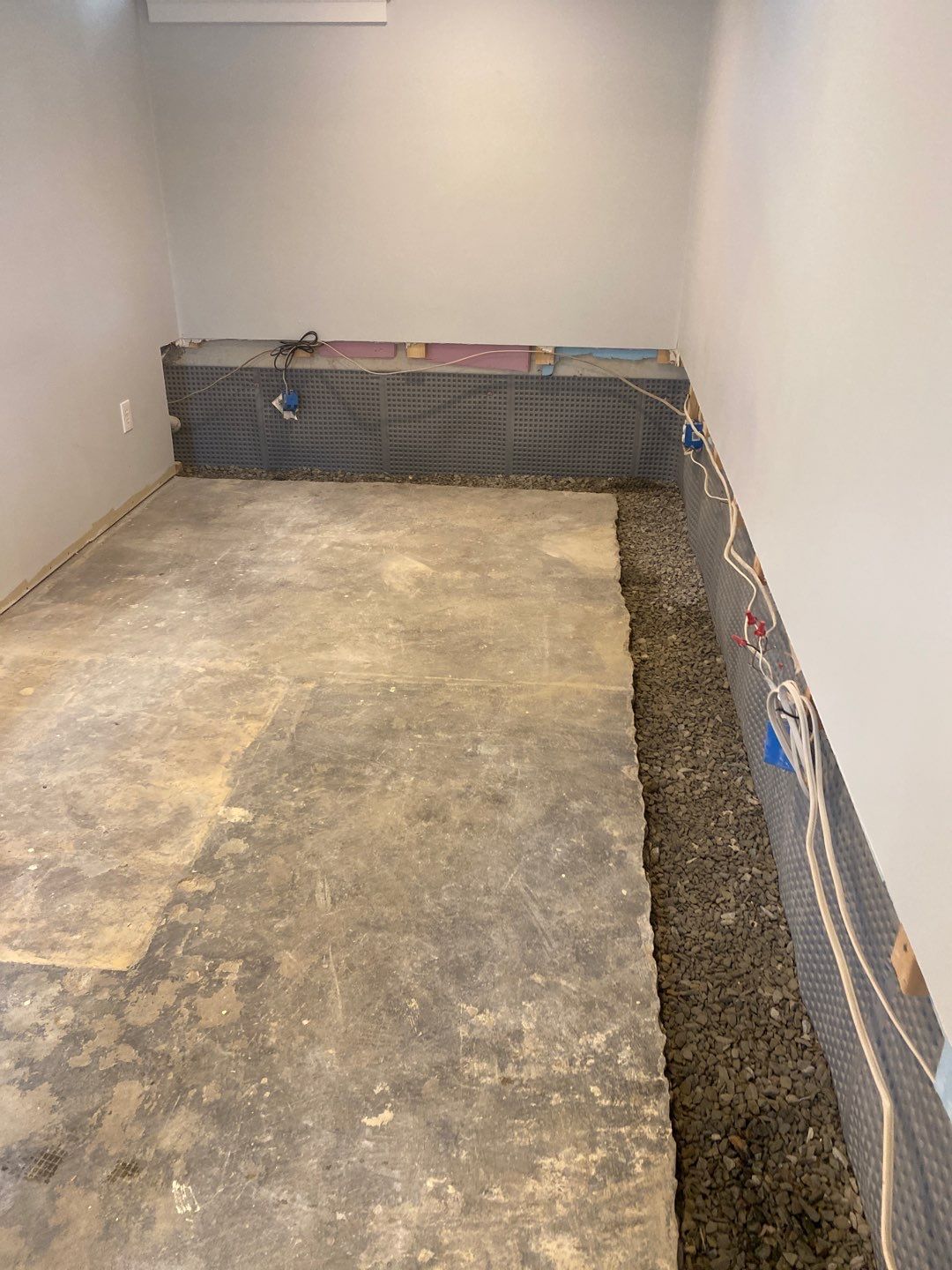
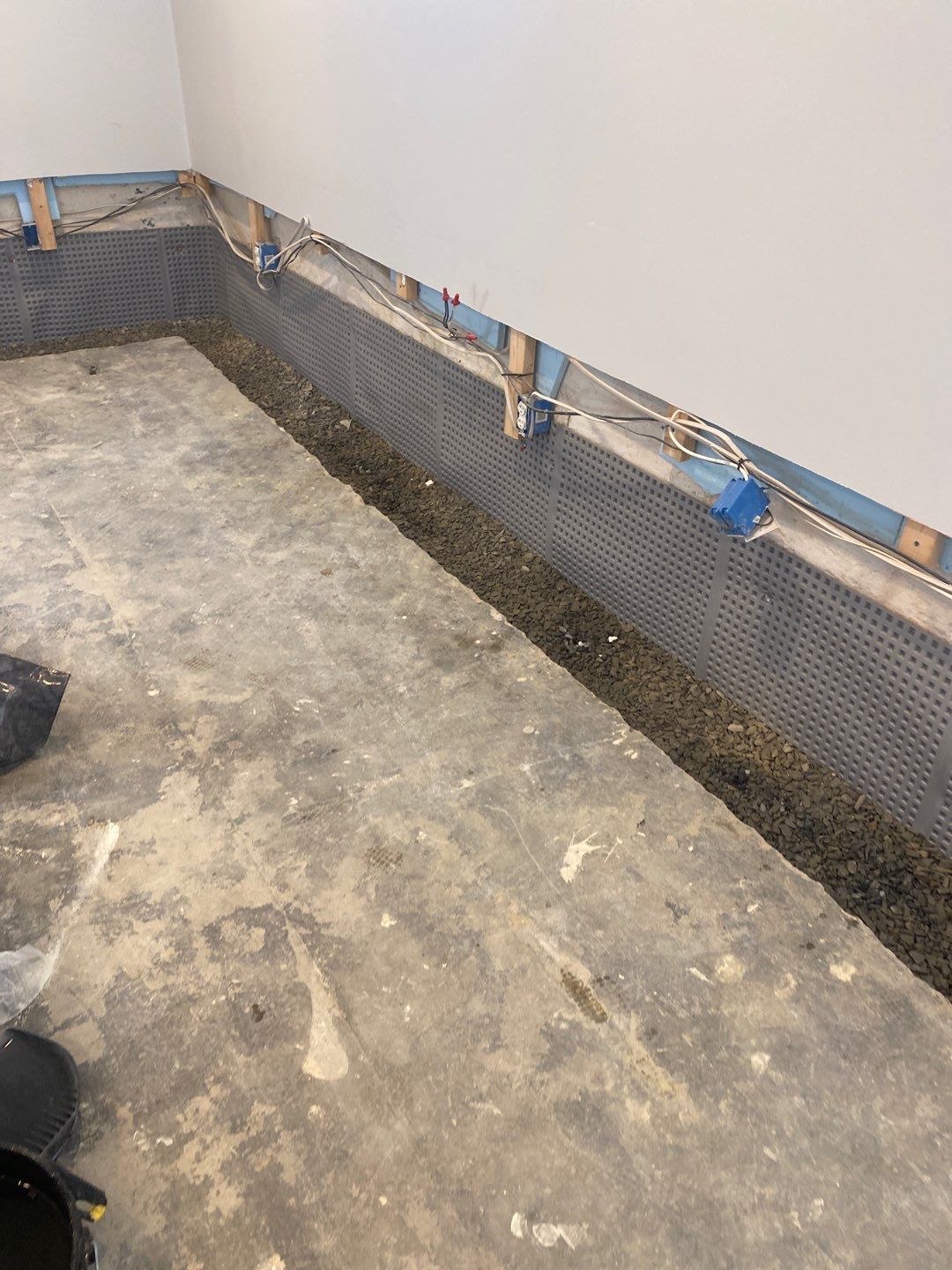
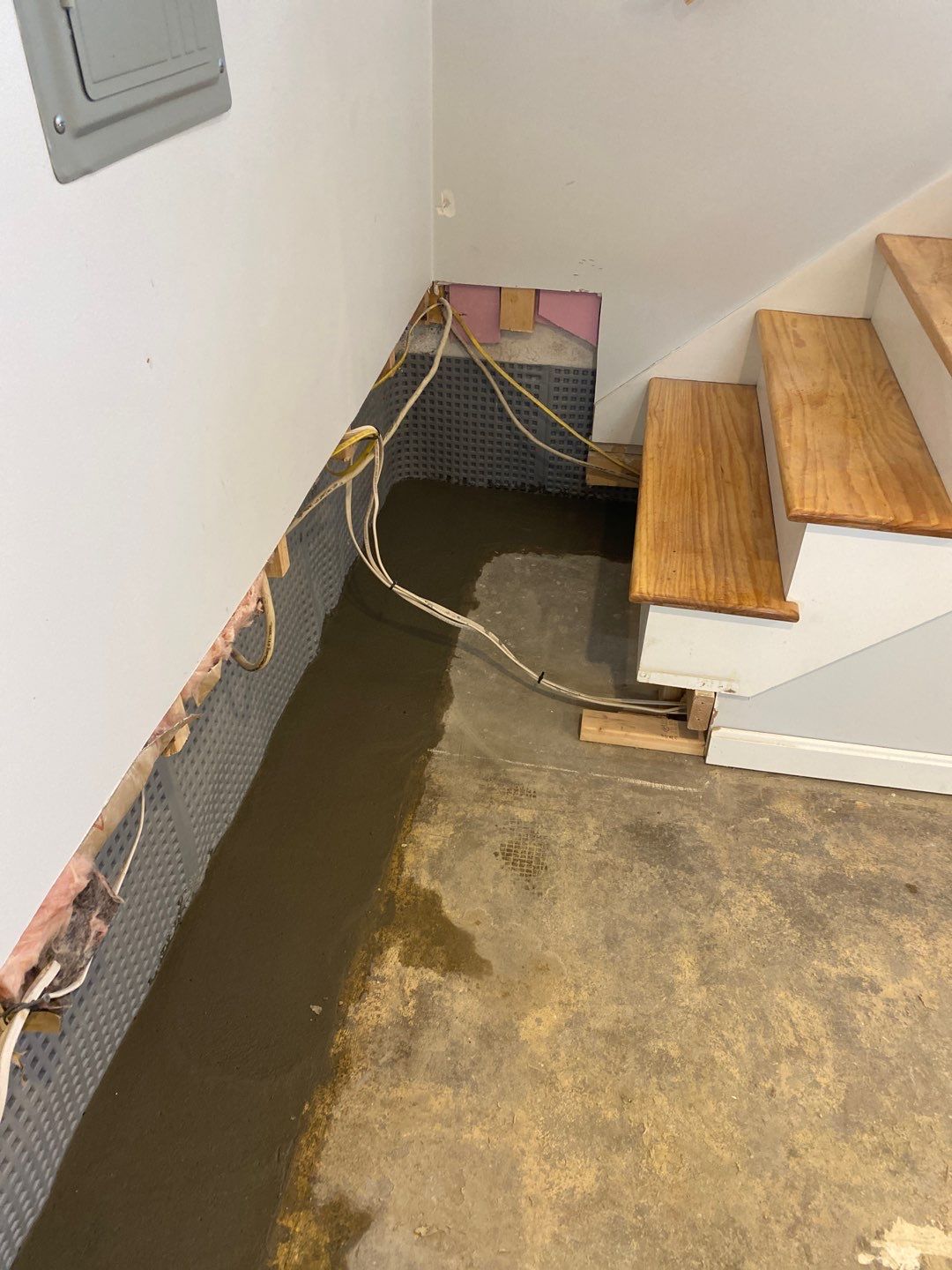
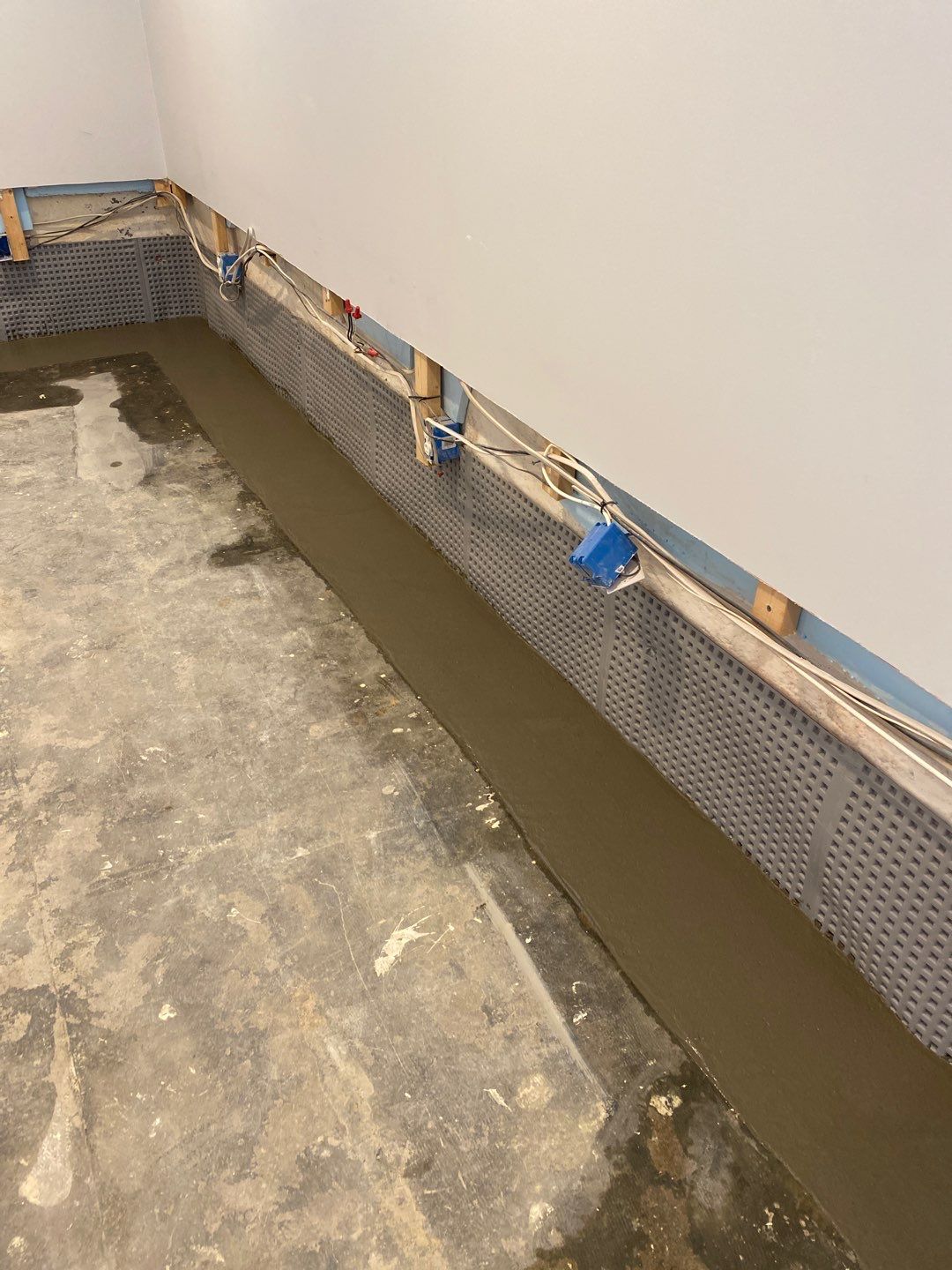
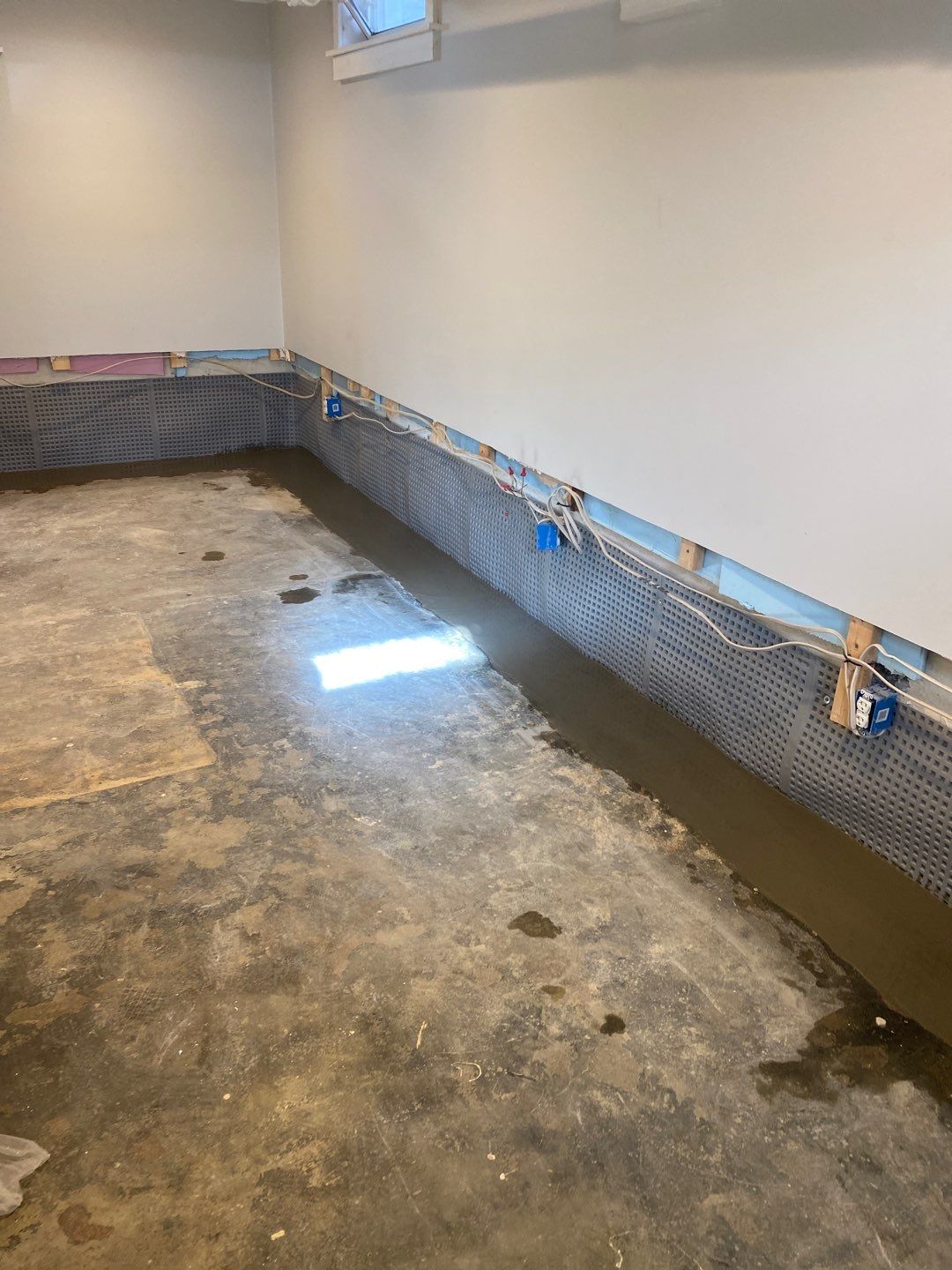
Benefits of Preemptive Waterproofing
The comparison between preemptive and retroactive waterproofing makes a compelling case for taking action before finishing a basement. Preemptive waterproofing is less expensive, less disruptive, and more effective at preventing damage. Homeowners who choose to waterproof their basements before finishing them enjoy peace of mind, knowing their investment is protected against the common threat of water damage.
Other Benefits of Preemptive Waterproofing
- Cost Efficiency
- Healthier Environment
- Increased Property Value
- Better Use of Space
- Warranty and Insurance Benefits
- Enhanced Structural Integrity
- Long-Term Savings
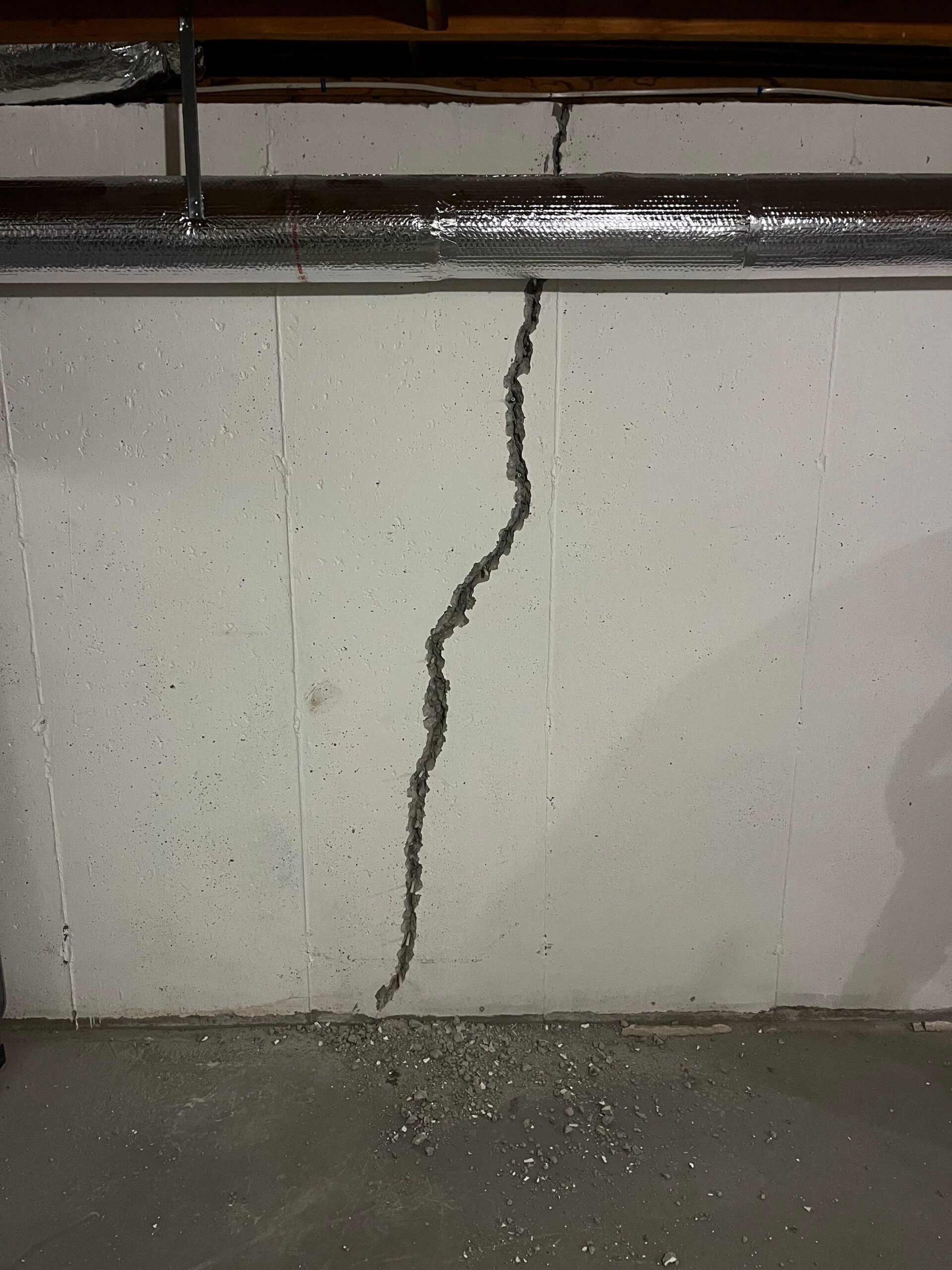
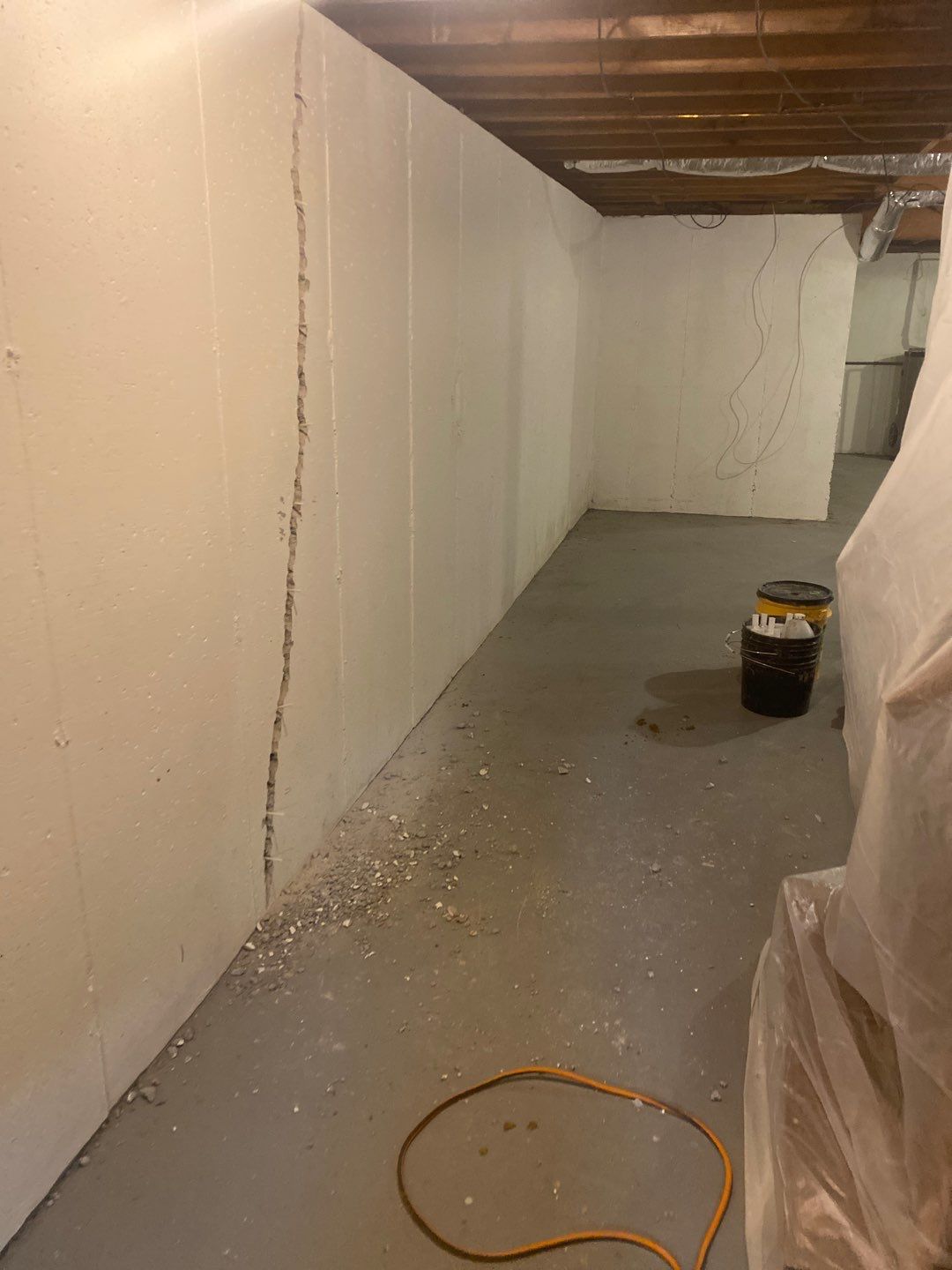
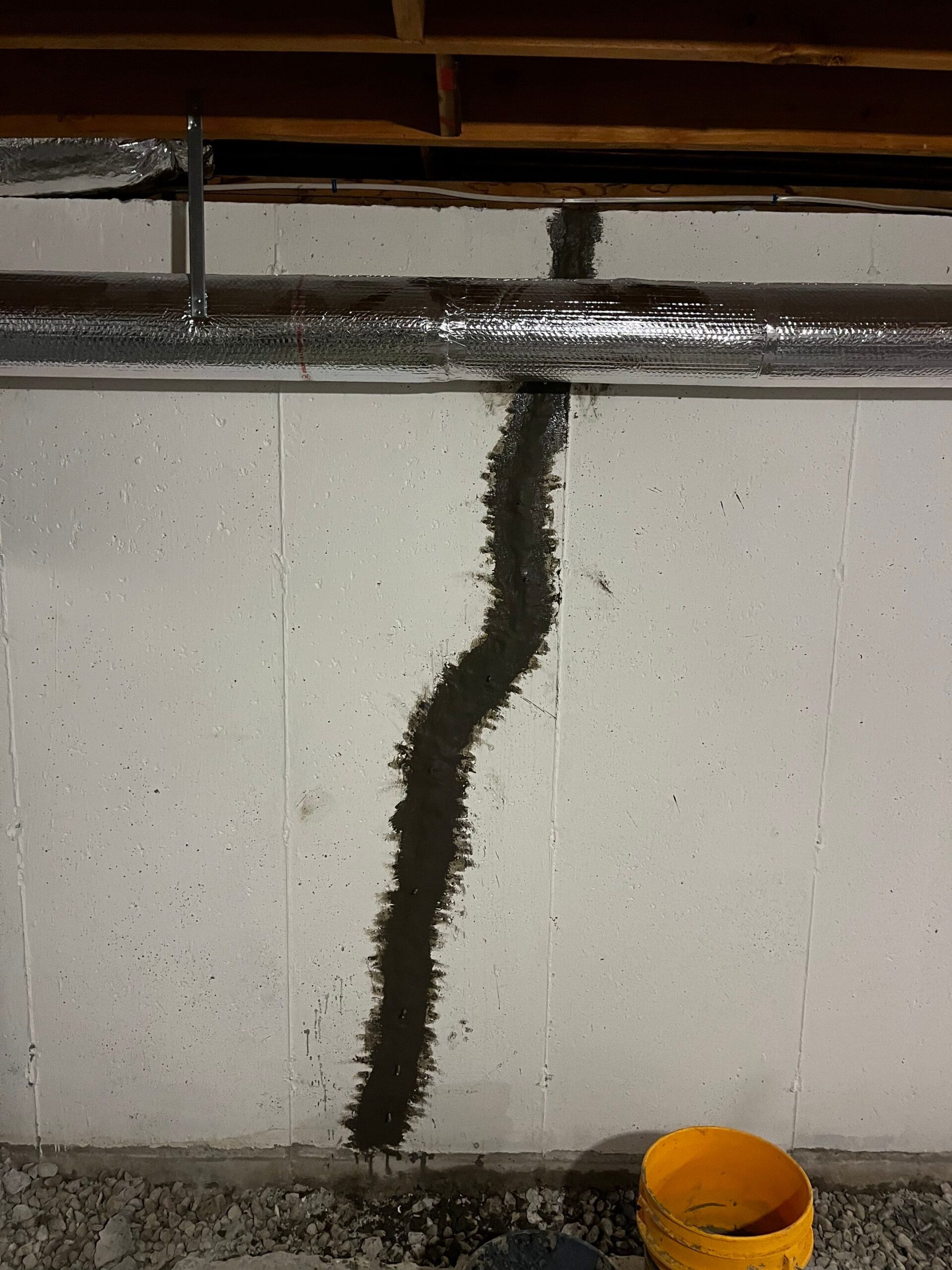
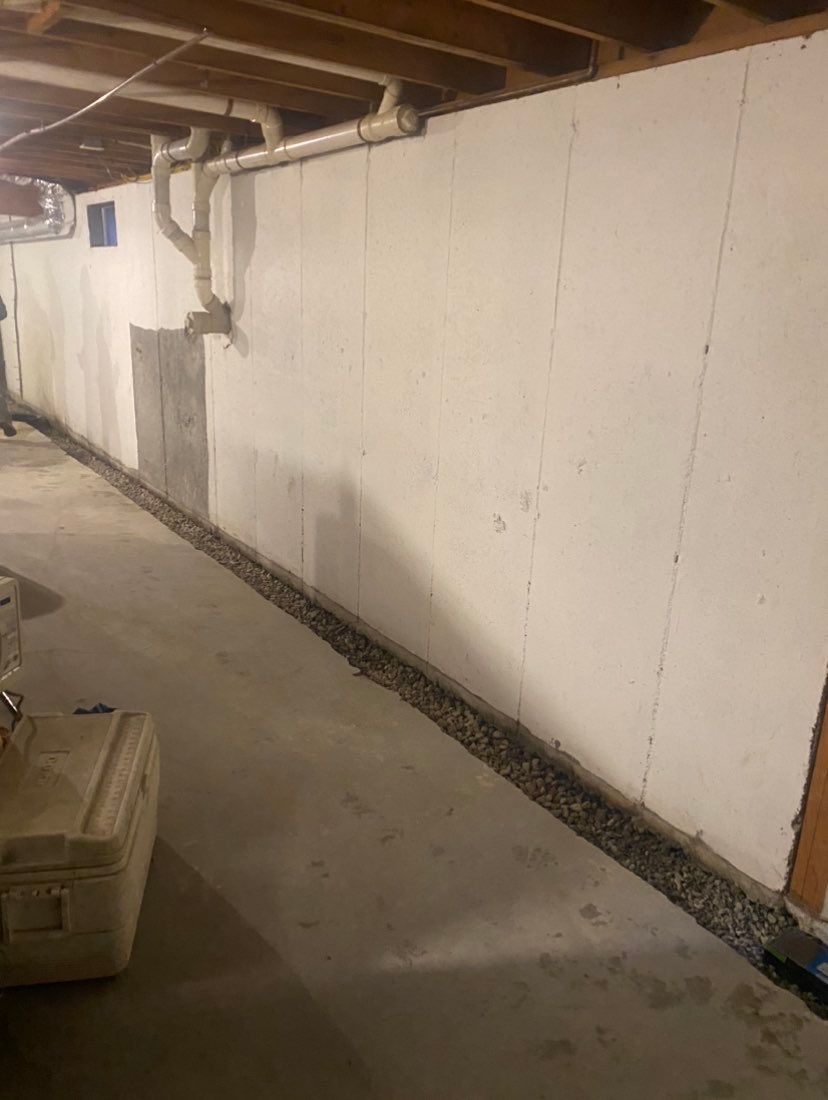
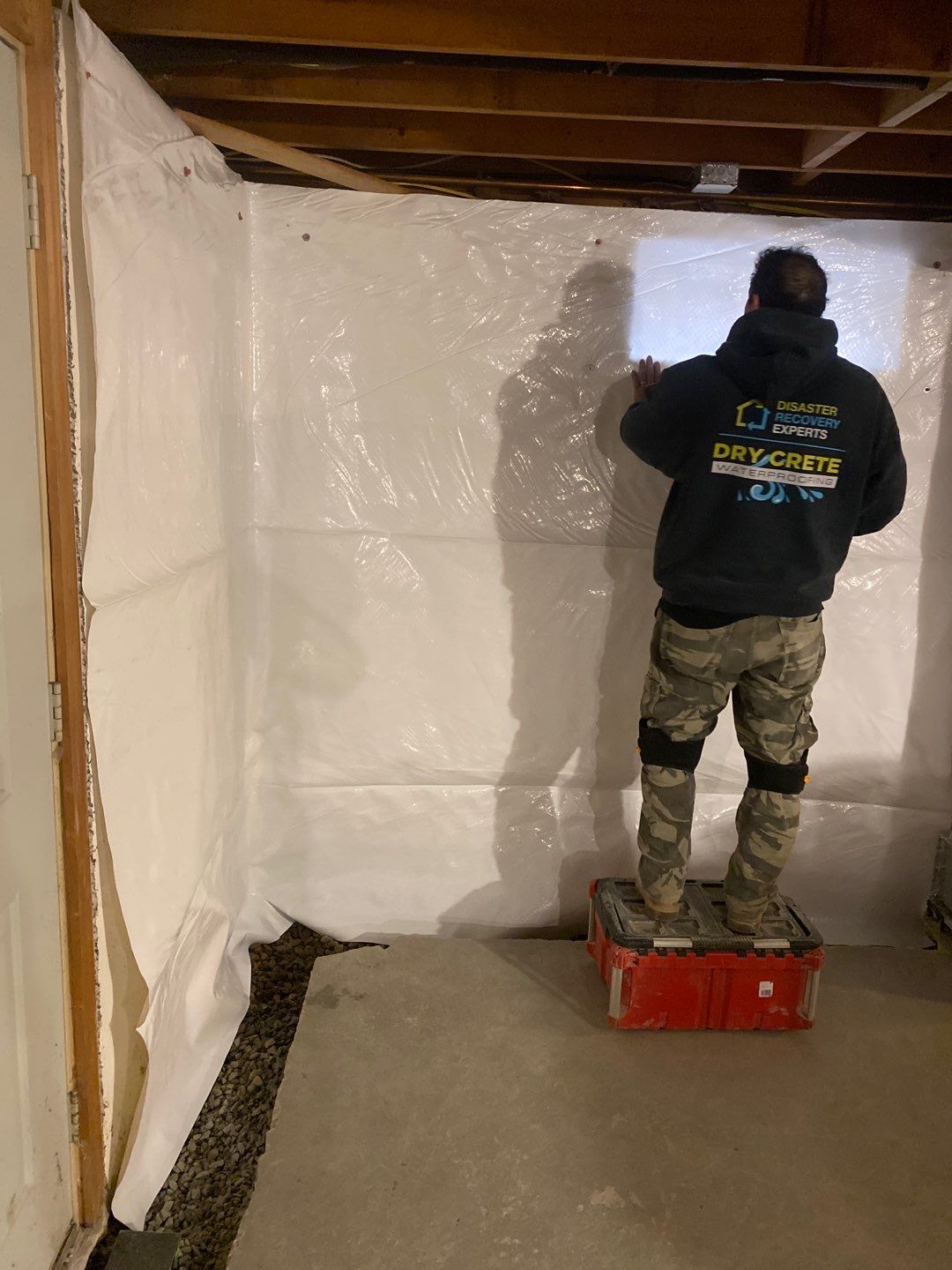
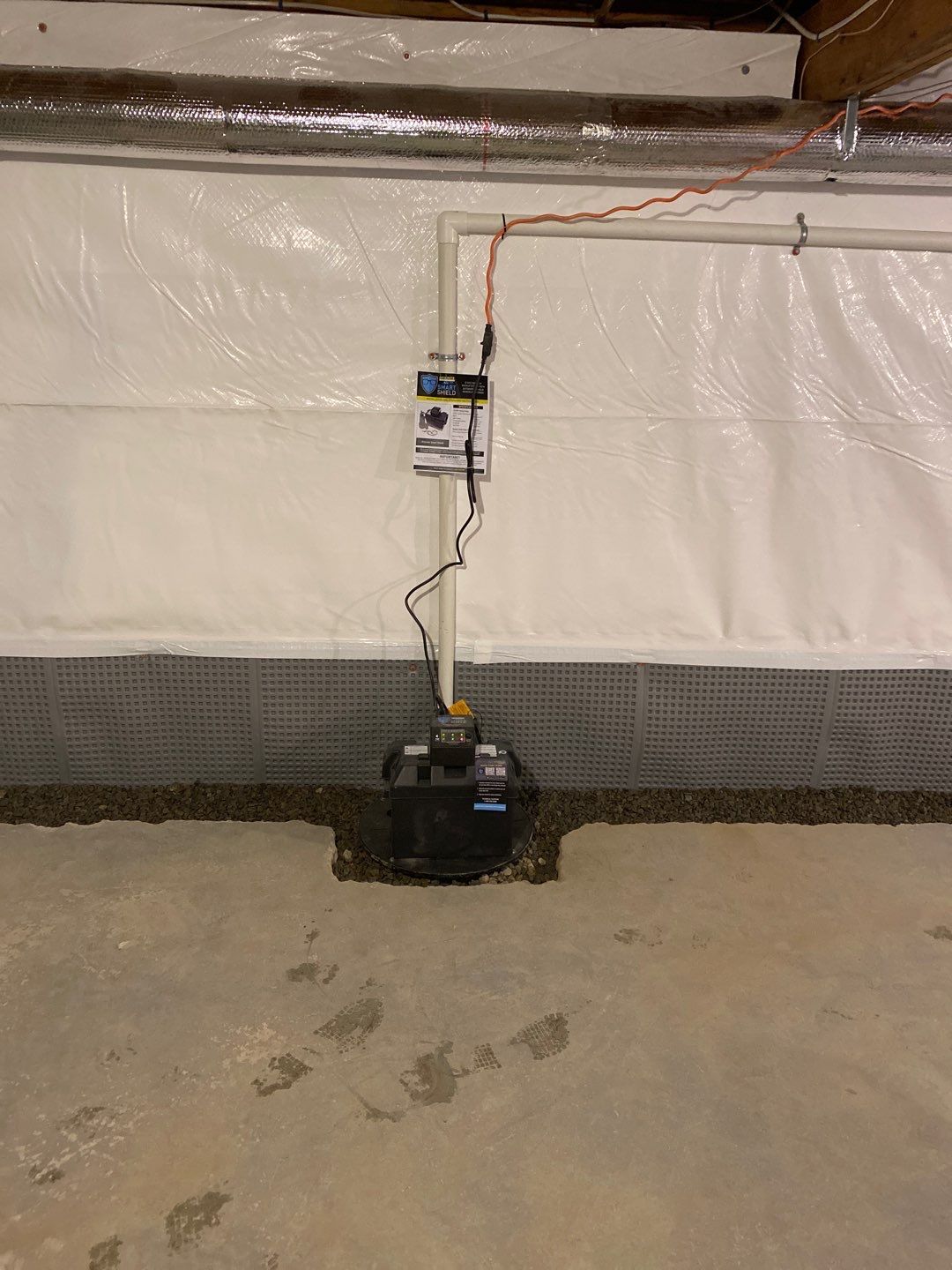
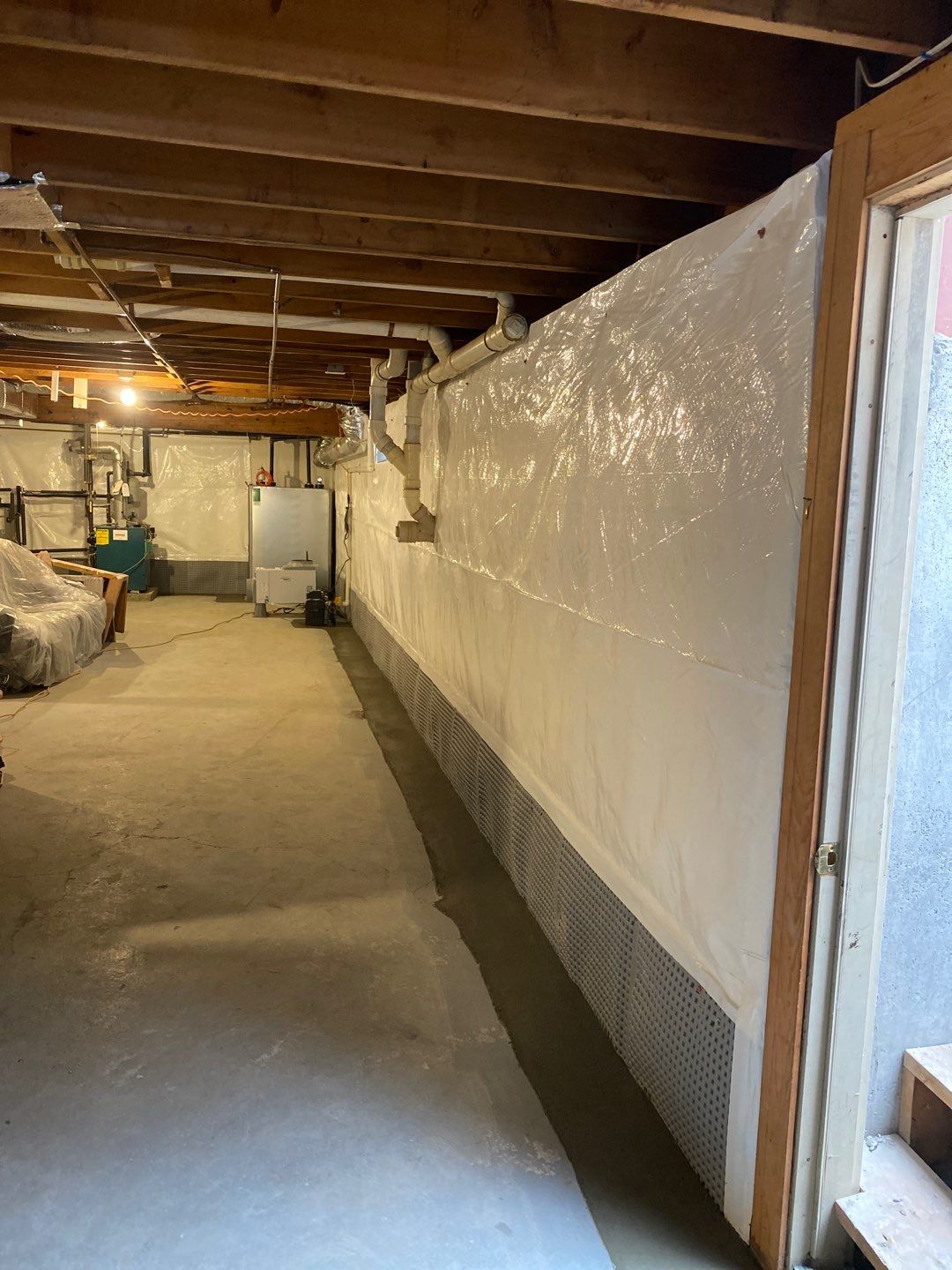
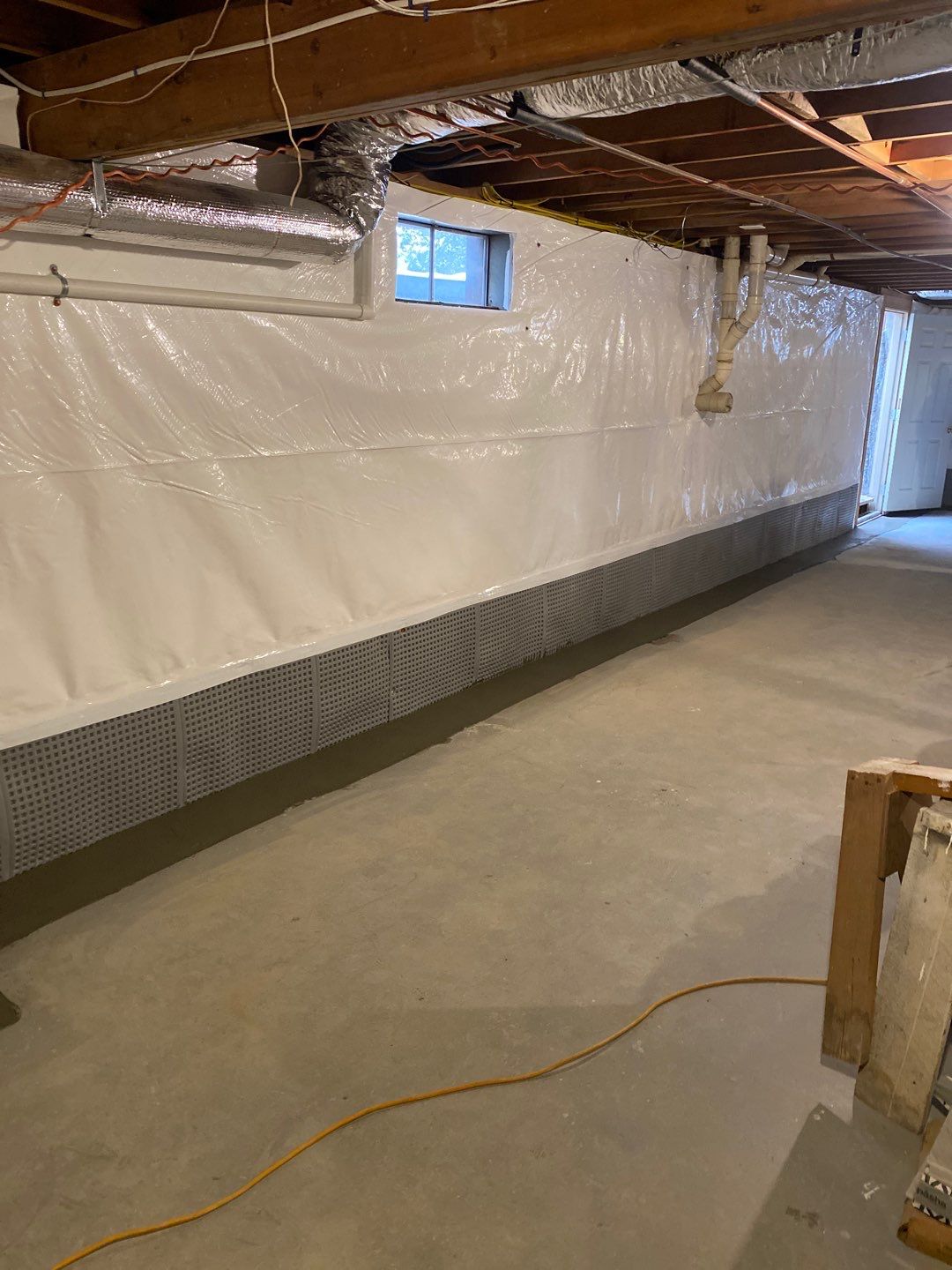
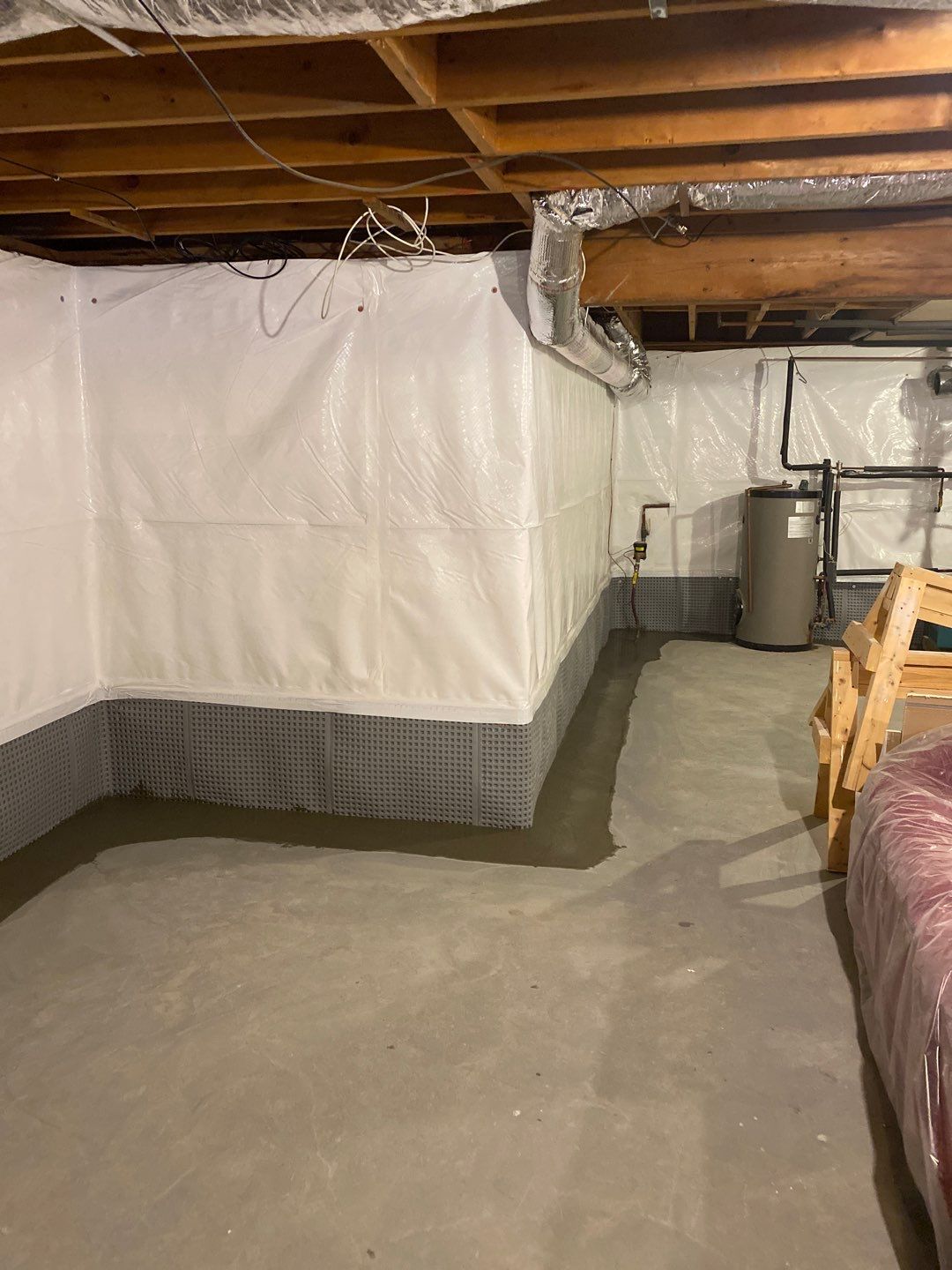
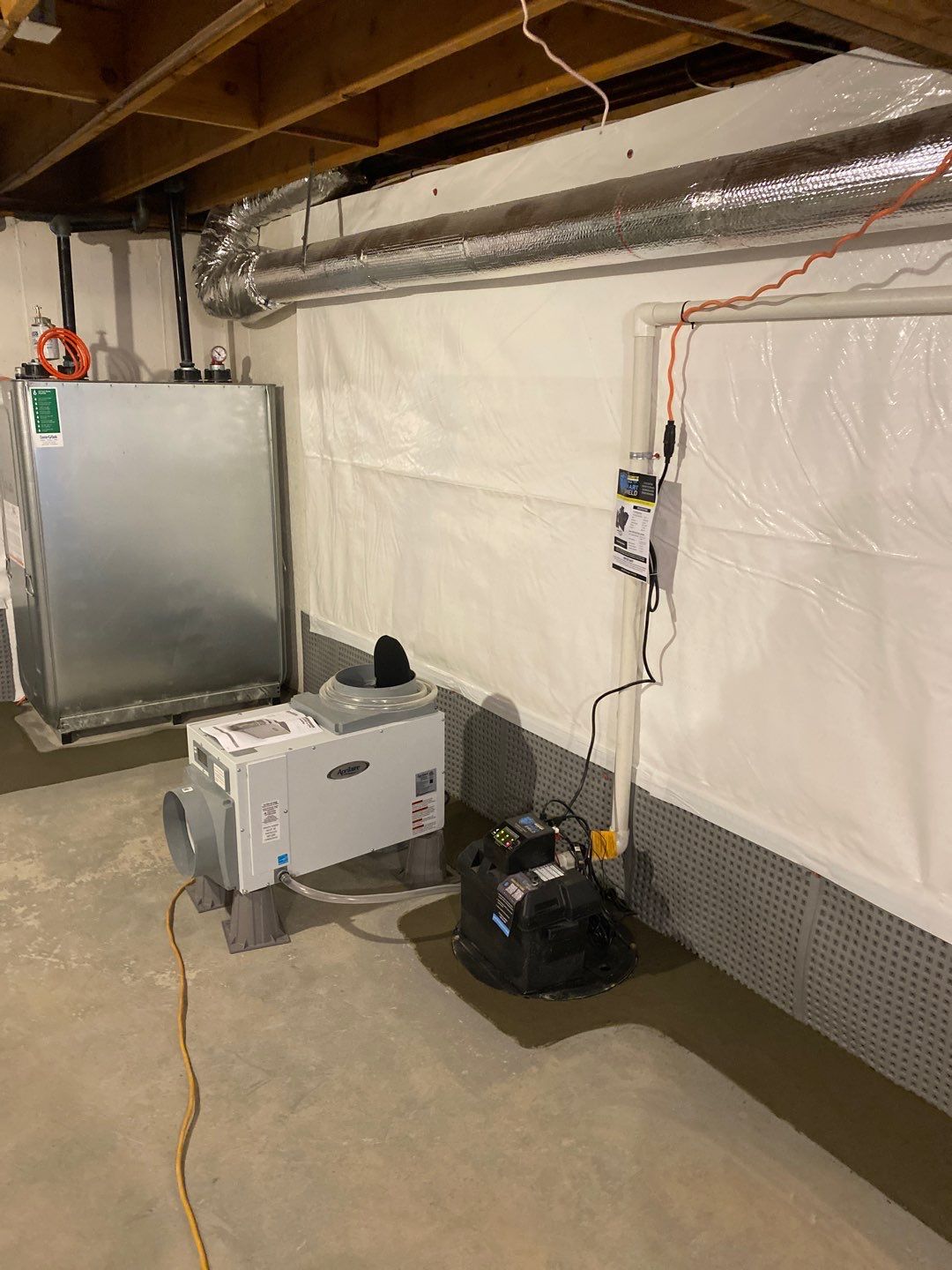
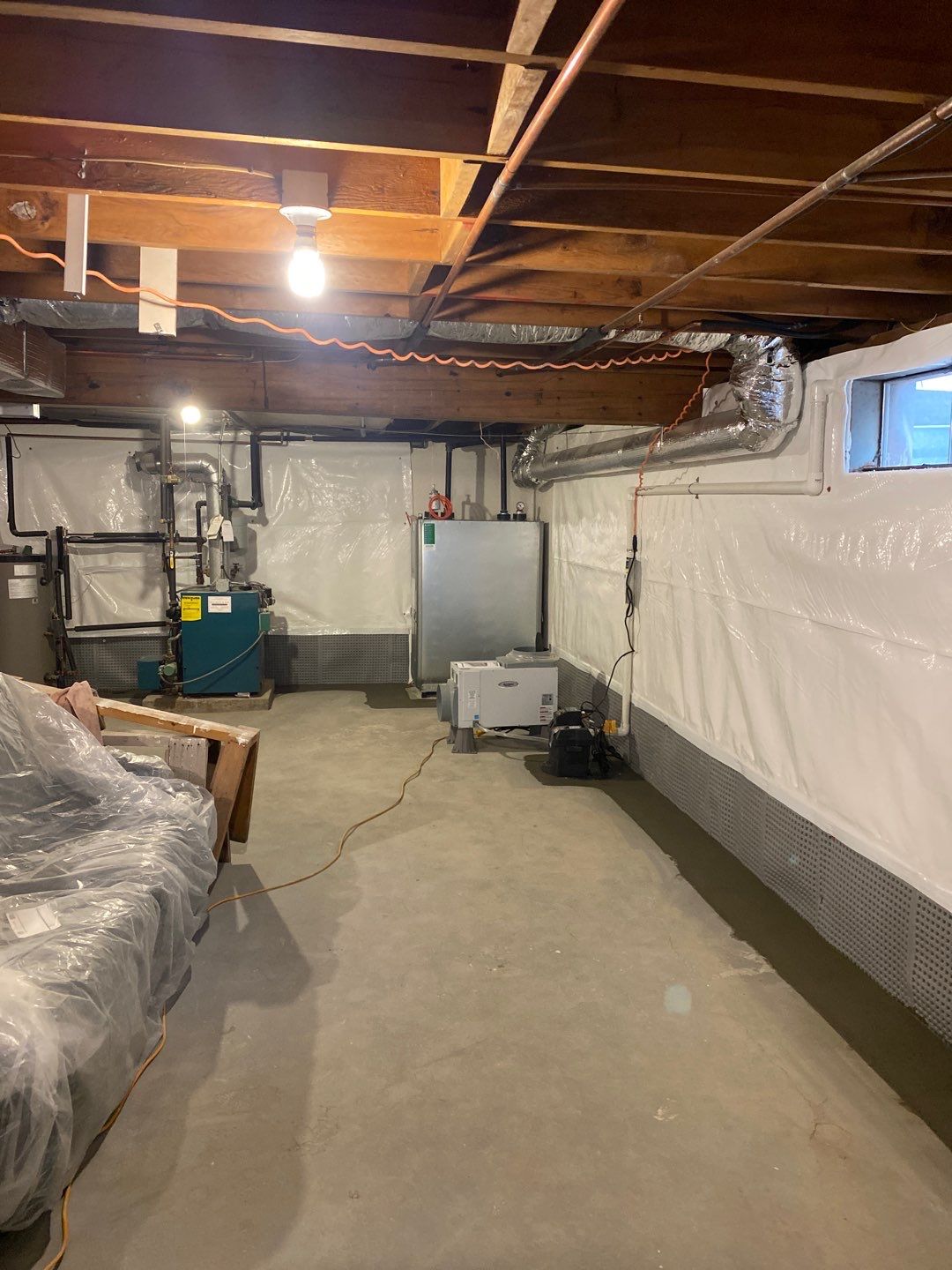
Contact Drycrete Waterproofing for Basement Waterproofing
Waterproofing your basement before finishing is a smart investment, protecting against costly damage and preserving your home’s value. It’s more efficient and less disruptive than retroactive fixes. However, sometimes it just doesn’t work out that way. Whether you need preemptive or retroactive waterproofing, contact us for expert guidance and peace of mind in safeguarding your space.
